Uncategorized
Participation at the ICASF – 3rd International Conference on Advanced Sustainable Futures – 10-11 December 2025, Abu Dhabi, UAE

Prof. PhD Cristina Sanchez Romero – the A-CHAT’s project coordinator together with Prof. PhD Pilar Gutiez Cuevas – President of AMPAT (project partner) and Andrean Lazarov – CEO of BIST (project partner) gave a speech about the project during the 3rd ICASF International Conference on Advanced Sustainable Futures.
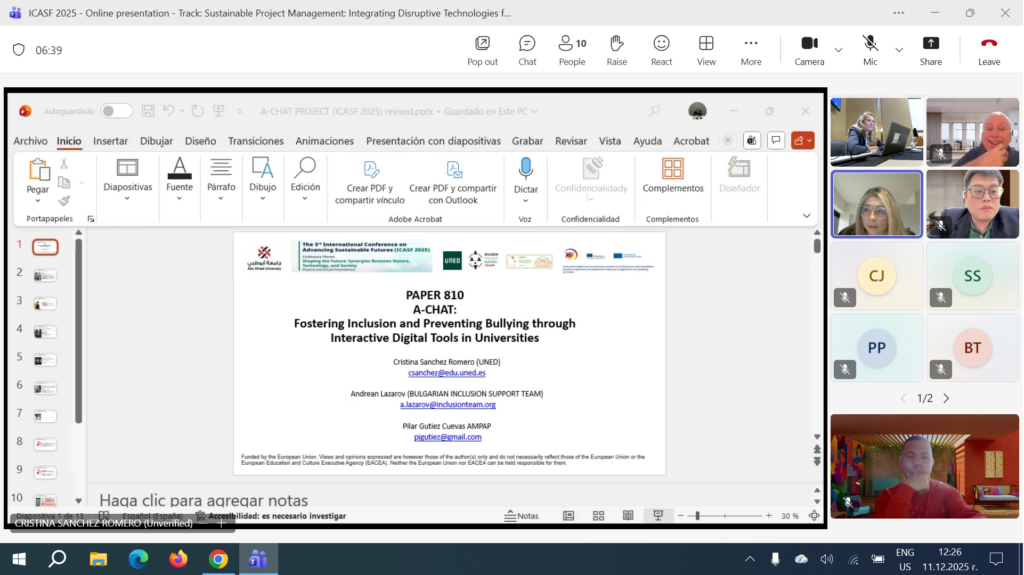
The event was held on 10th and 11th December 2025, in Abu Dhabi, UAE and allows also online presentation. Our representatives presented the project concept, as well as the first ready project result Result 1: Guidelines handbook to university teachers/staff on supportive and preventive measures of aggression and bullying via inclusive approach. In addition, the ontology of Result 2. Ontology framework and development of the online interactive tool based on CHATbot functionalities was also demonstrated by the project team.
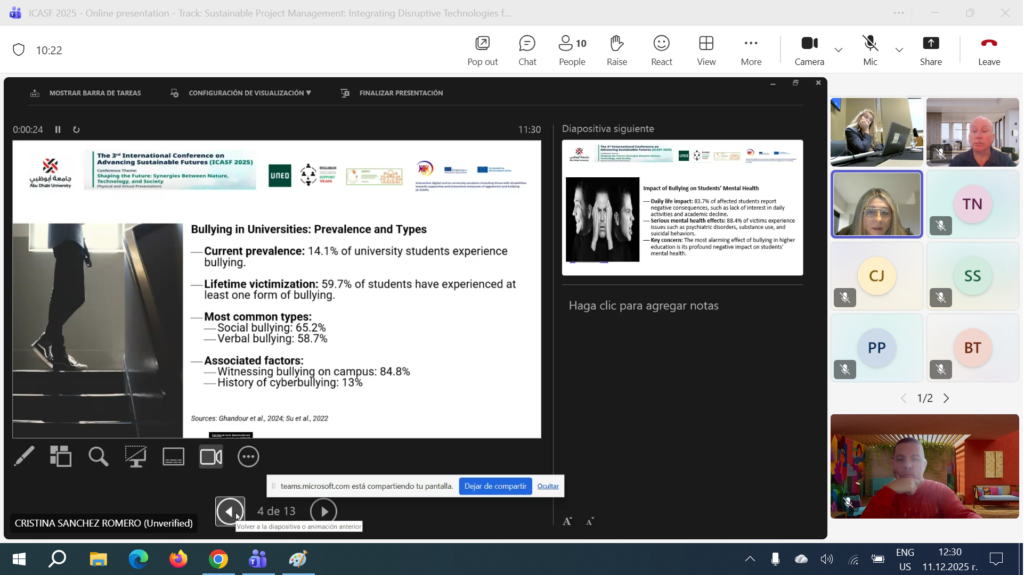
Dedicated paper was also submitted and will be published on Scopus Journal in the beginning of 2026.
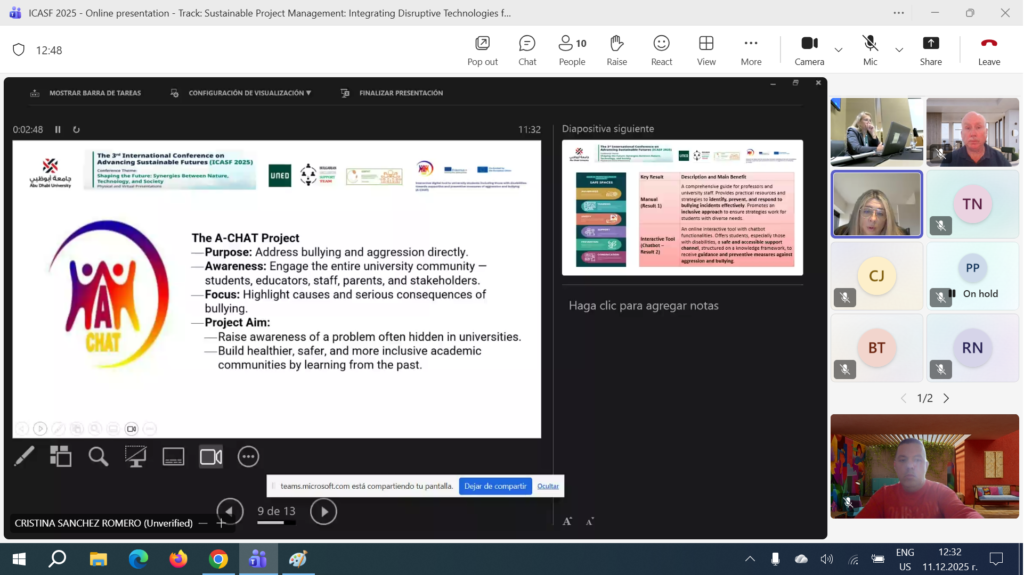
The event was an important opportunity for extending the A-CHAT Community of practice on international level and to build upon possibilities for transfer of know-how and innovations.

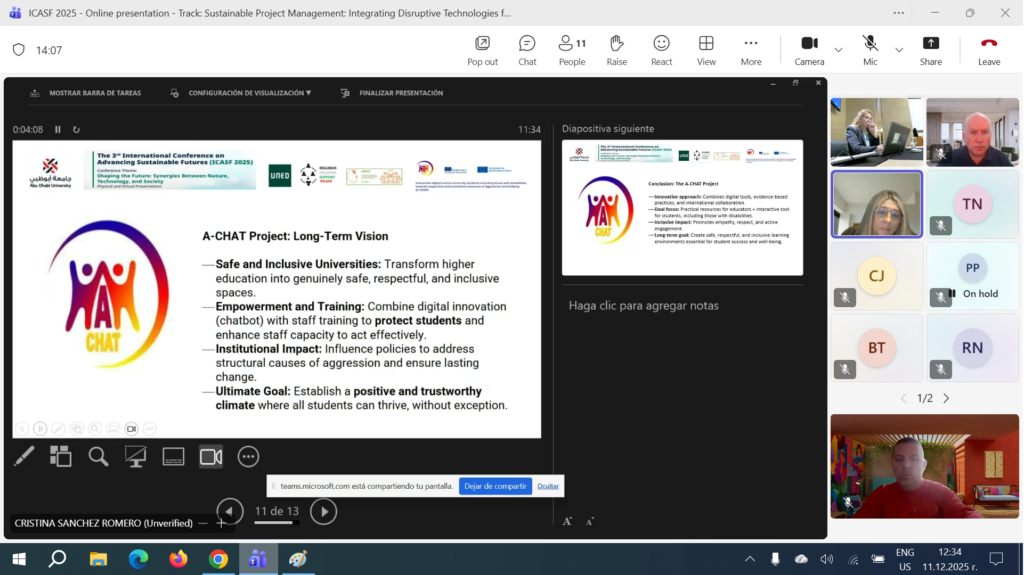
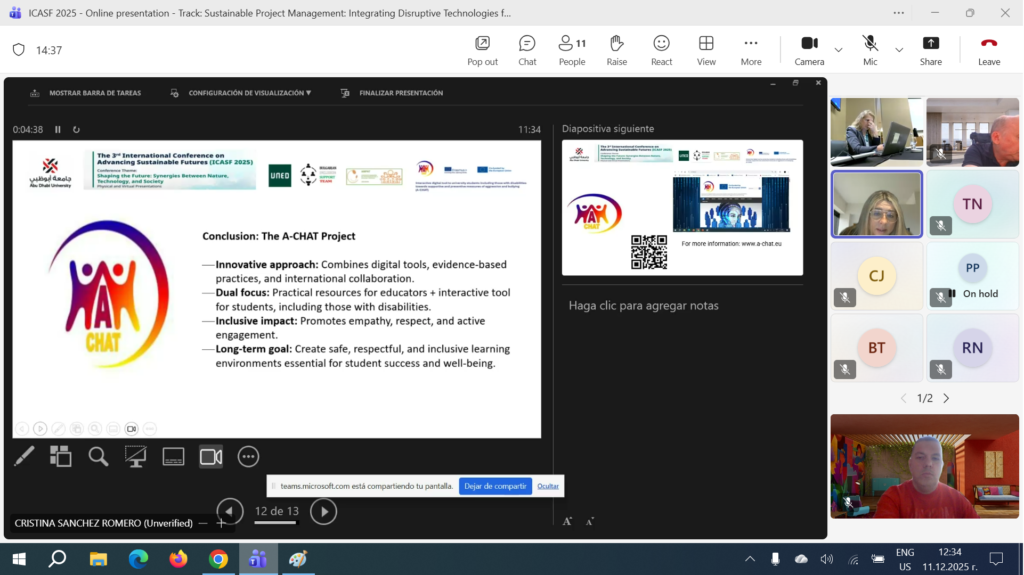
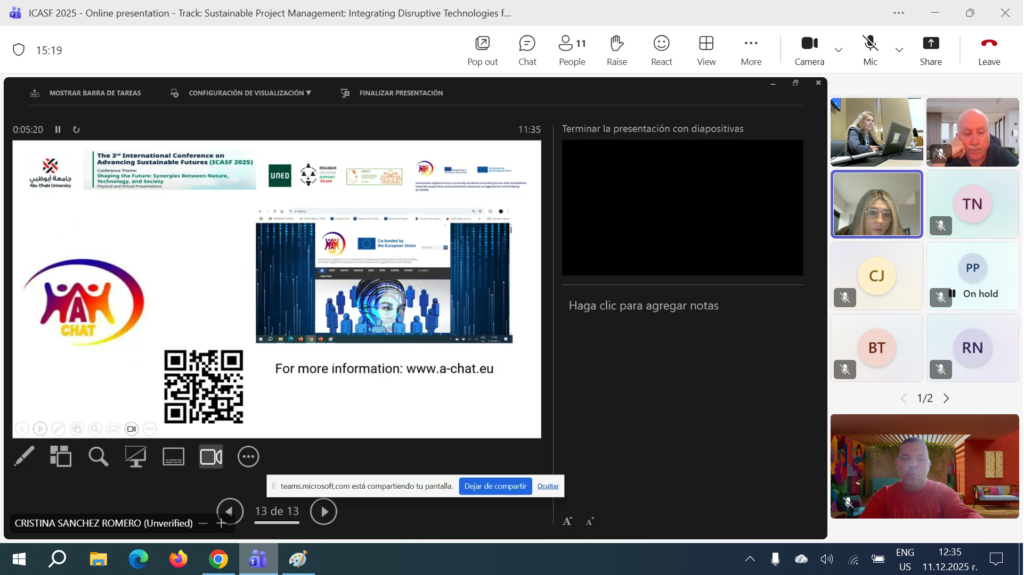
Promotion of the project during the INVEST European alliance winter school on “Diversity and inclusion” – 01-05 December 2025, Plovdiv, Bulgaria
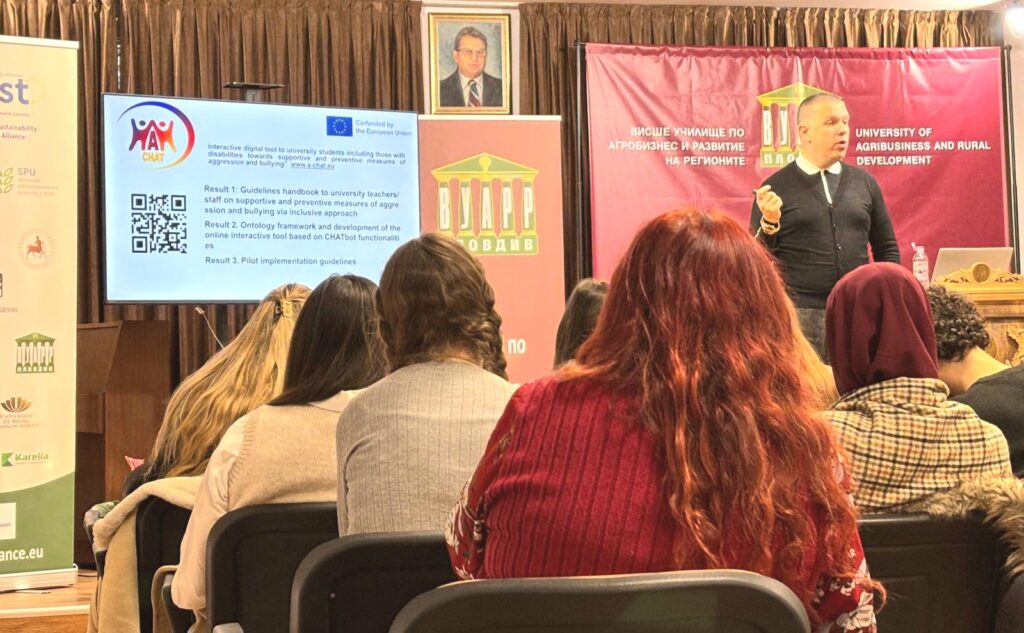
The project concept and expected results were presented during the winter school on the topic “Inclusion and Diversity” as part of the European University Alliance “INVEST”. Students from pedagogical faculties from Slovak Republic, Greece, Bulgaria, Italy, Spain, Finland and France have learnt about the methodology behing the project and they will take part in the Community of practice once the project results are available.

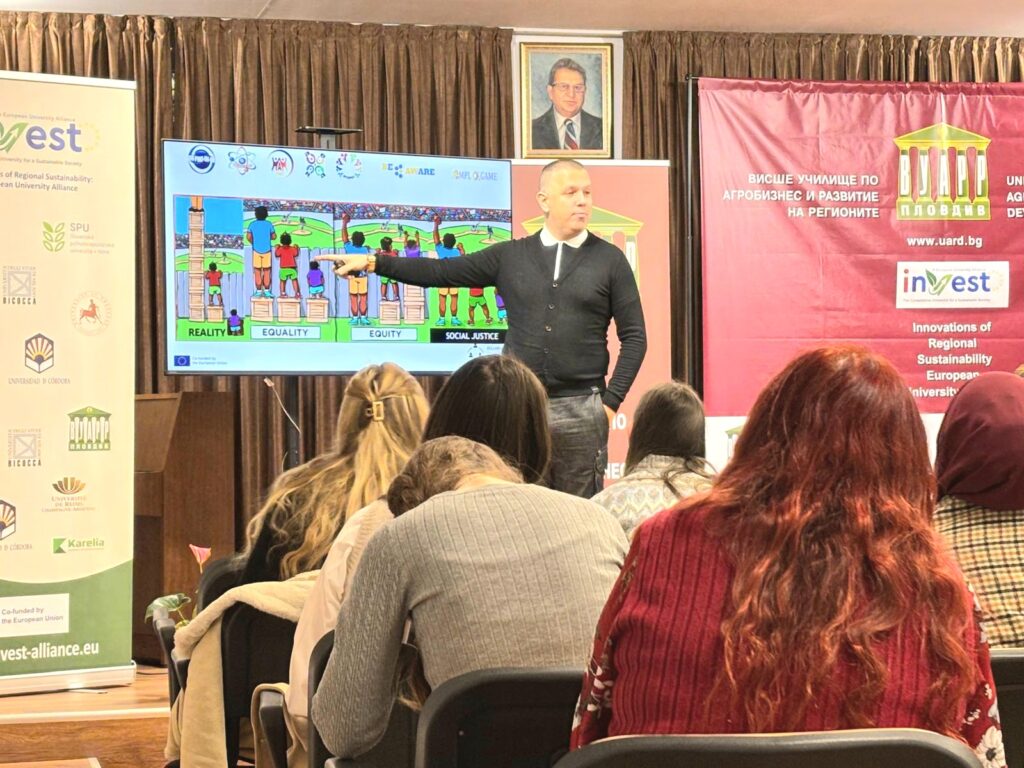

Presentation and dissemination of the project during International scientific conference “Leadership and Organisational development”, Sofia, Bulgaria, 28-29 November 2025
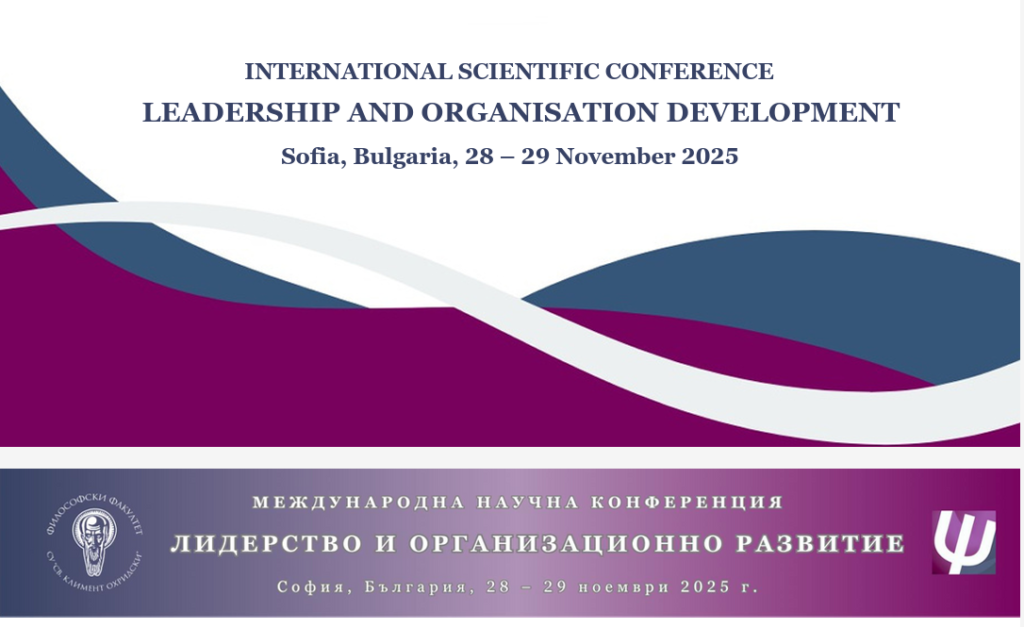
The project and its recent results were promoted during the International scientific conference on “Leadership an Organisational development”. It was hosted by the biggest university in Bulgaria – the Sofia University “St. Kliment Ohdridski”.
The project consortium was represented by prof. PhD Cristina Sanchez Romero – project coordinator on behalf of UNIVERSIDAD NACIONAL DE EDUCACION A DISTANCIA, Madrid, Spain, Andrean Lazarov – CEO of the Bulgarian Inclusion Support Team and prof. PhD Pilar Gutiez Cuevas – President of ASOCIACIÓN MADRILEÑA DE PROFESIONALES DE LA ATENCIÓN TEMPRANA, Madrid, Spain. They have participated in different panels of the conference, where they have introduced different components of the project realisation including results 1 and 2.

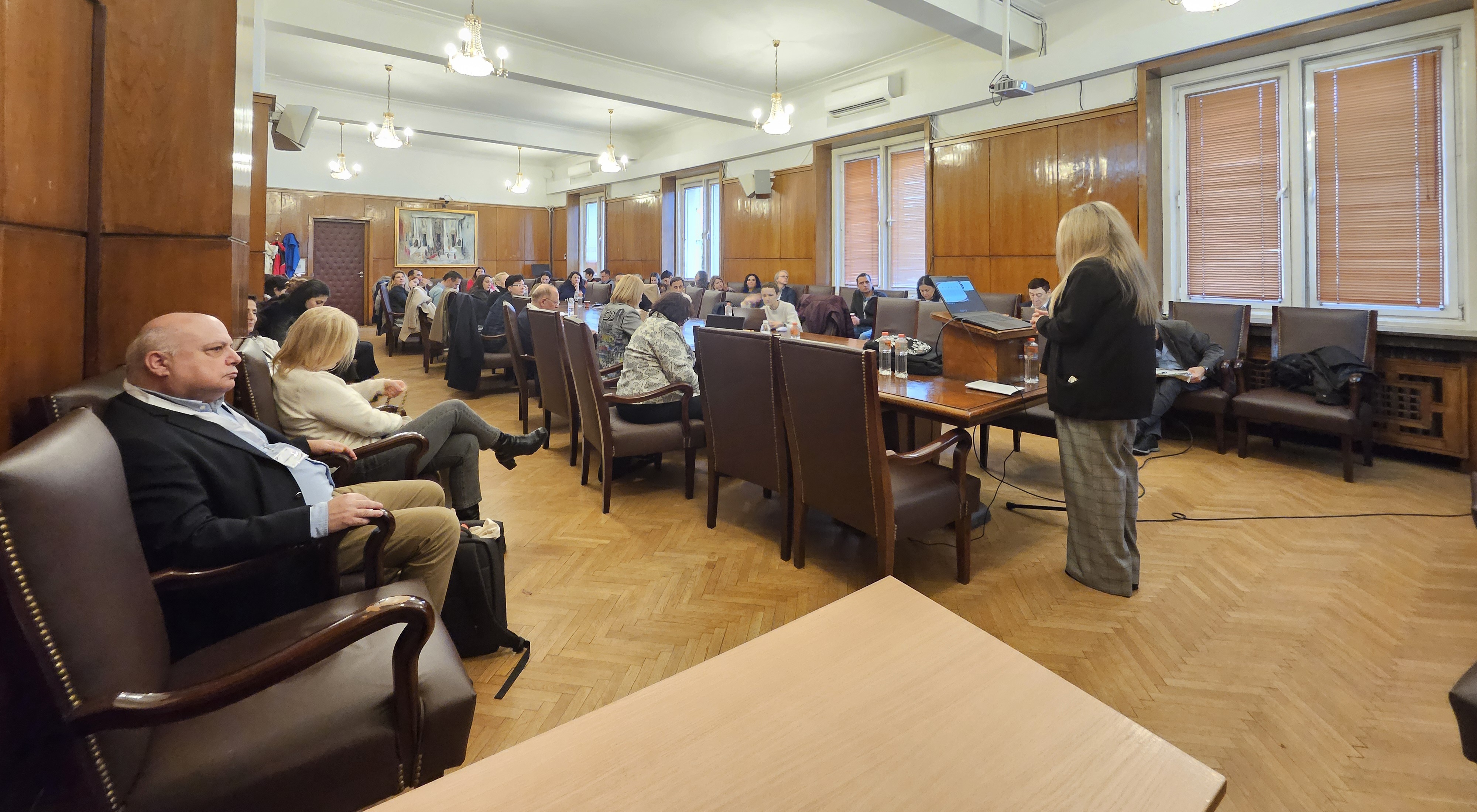
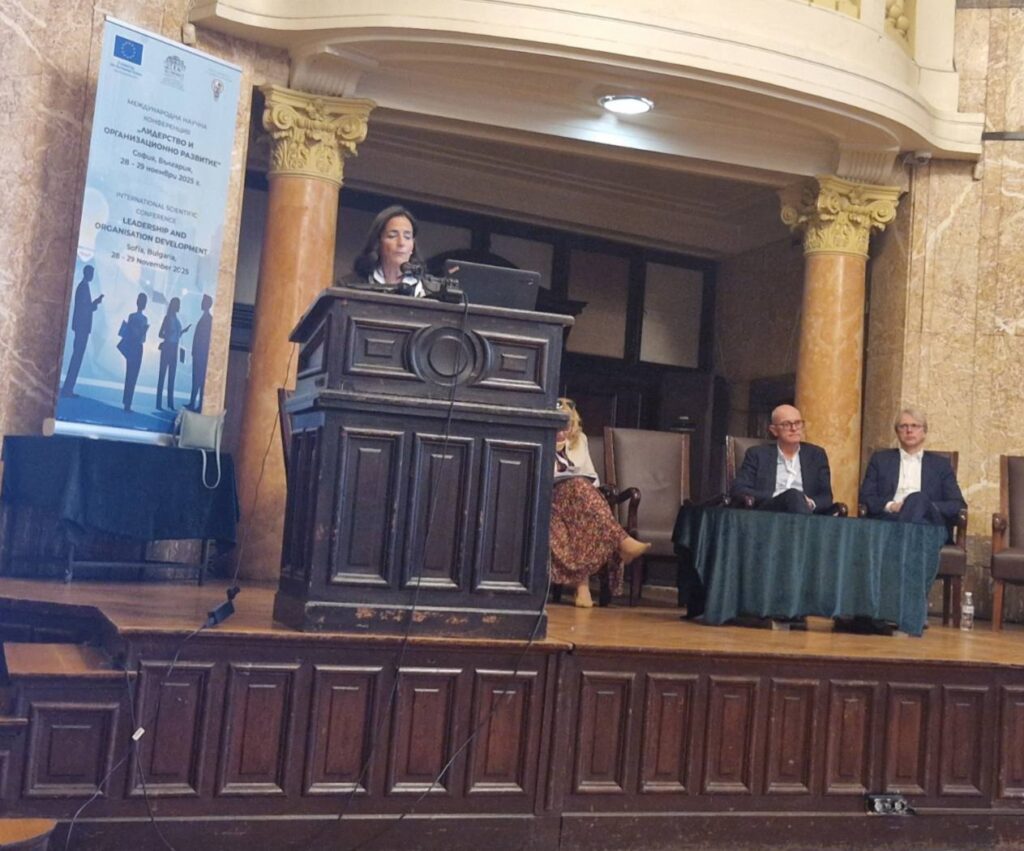
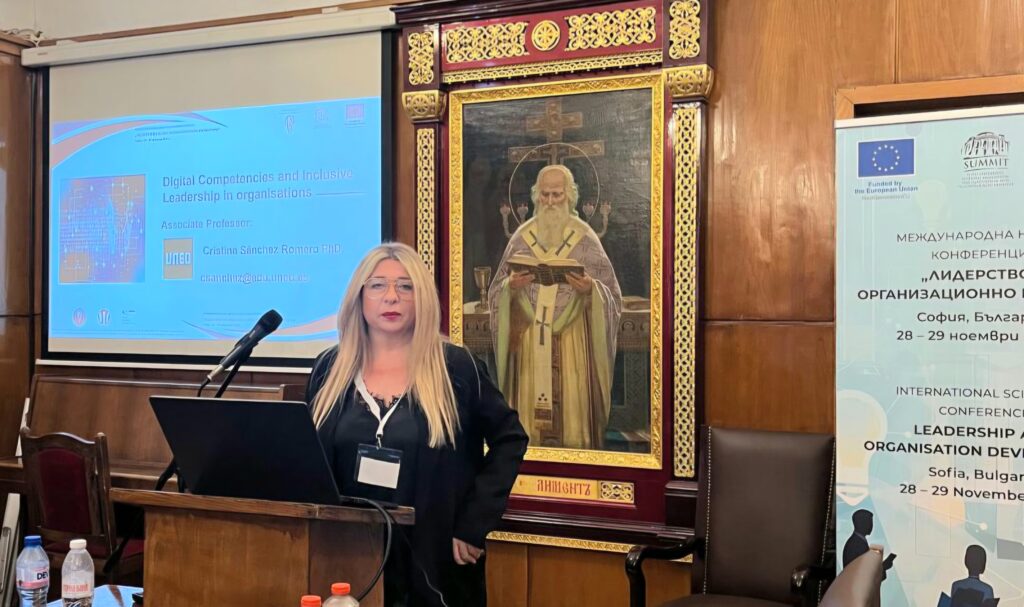
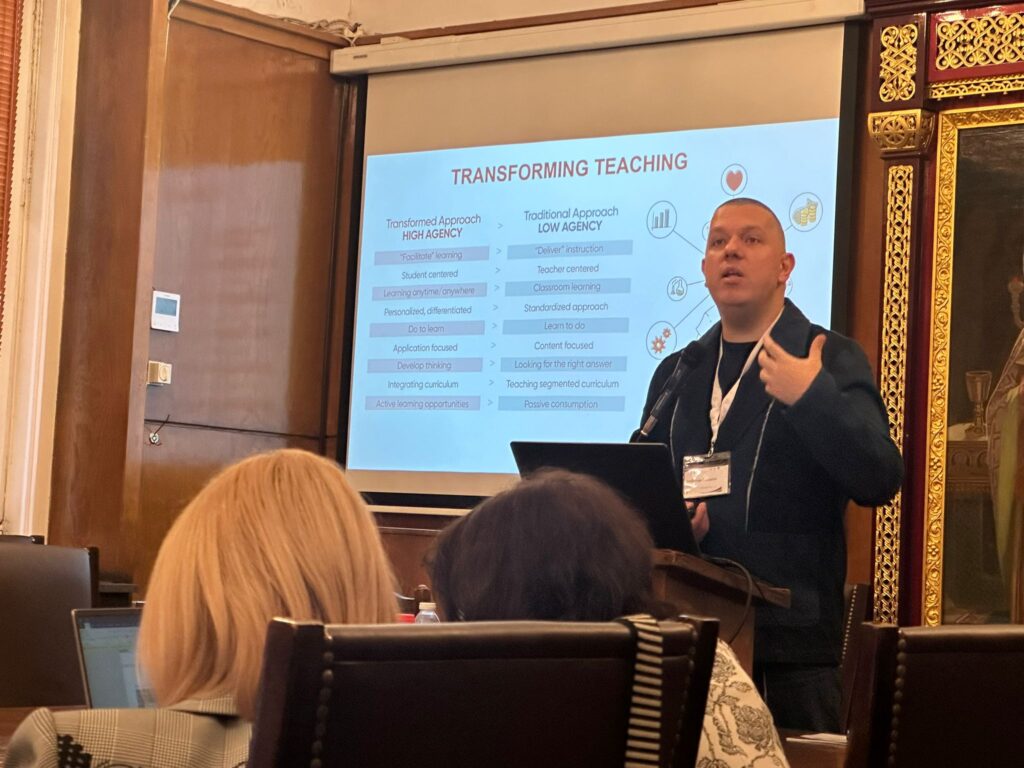
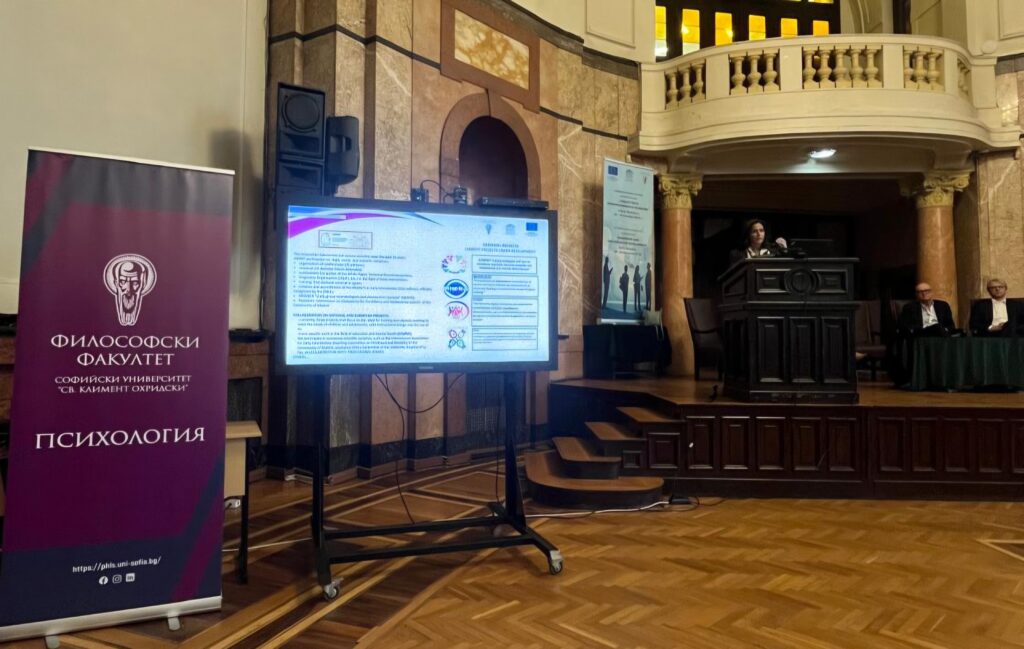

Presentation of the project during the STOPSY multiplier event in Sofia, Bulgaria as part of the Erasmus+ Days 2025
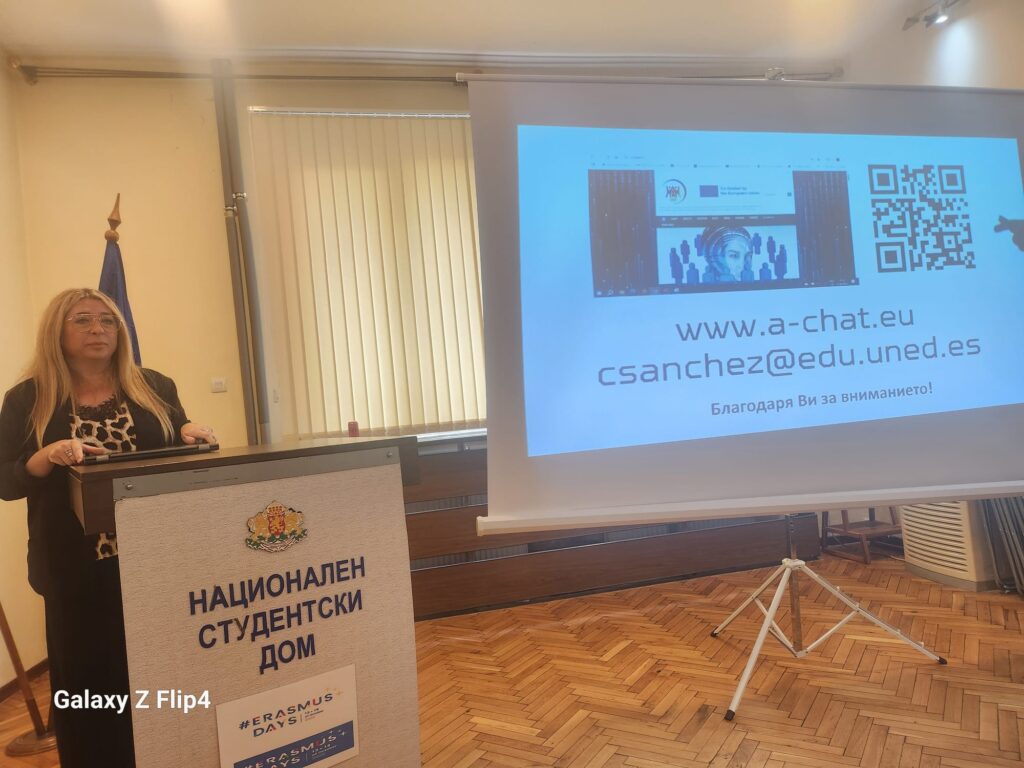
During the Erasmus+ Days 2025, Prof. PhD Cristina Sanchez Romero presented the A-CHAT project at the STOPSY Final Multiplier Event, which was held on 16 October 2025 at the National Students’ House of Sofia. The event was organised by another partner of the project – the Bulgarian Inclusion Support Team in collaboration with the other Spanish partner – AMPAT. Prof. Romero presented the recent structure of the Chatbot as well as highlighted the main components of the Result 1: Guidance handbook to university teachers/staff on supportive and preventive measures of aggression and bullying via inclusive approach.
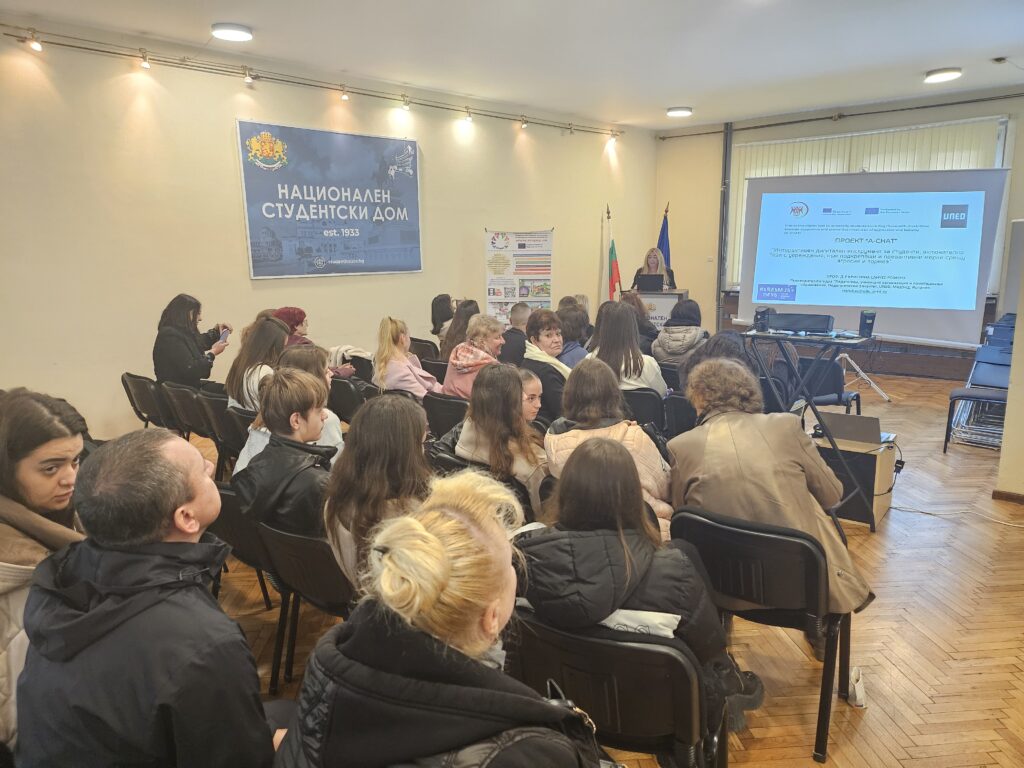
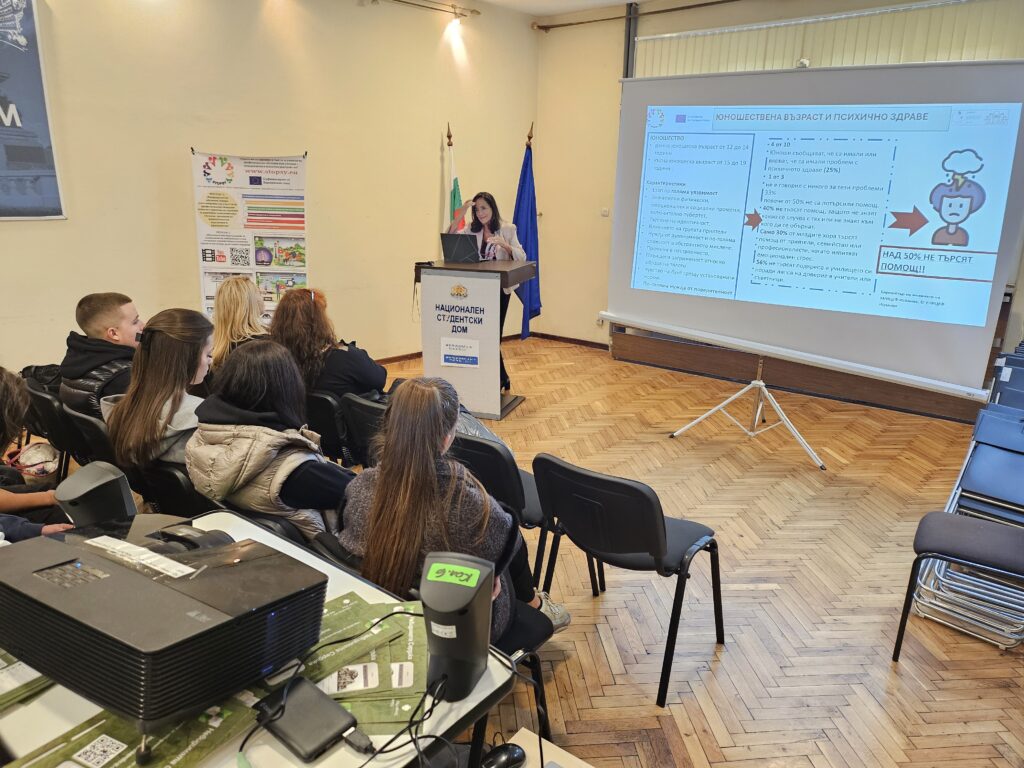
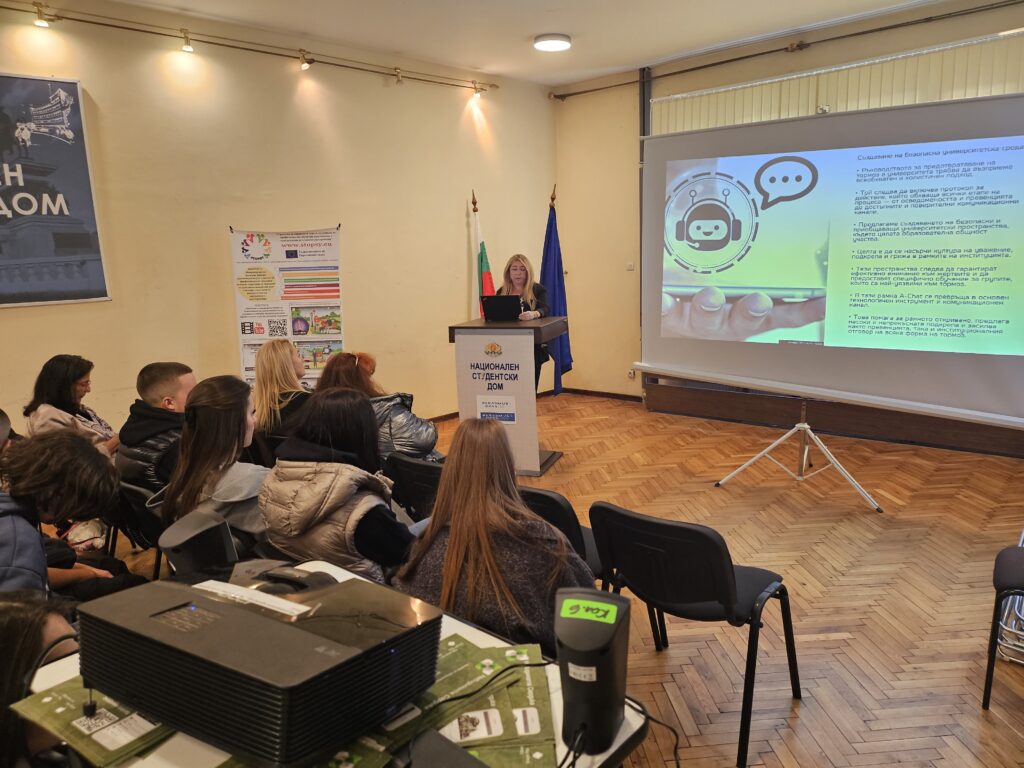
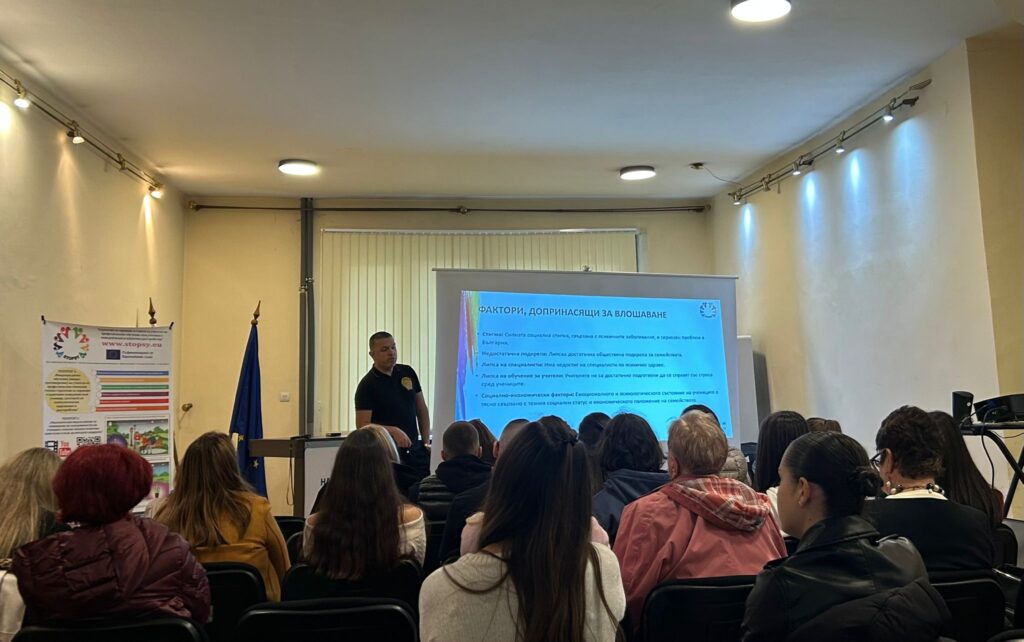
Promotion of the project during the EMPLOGAME Multiplier event held on 27 October 2025 in Autonomous university of Madrid, Spain
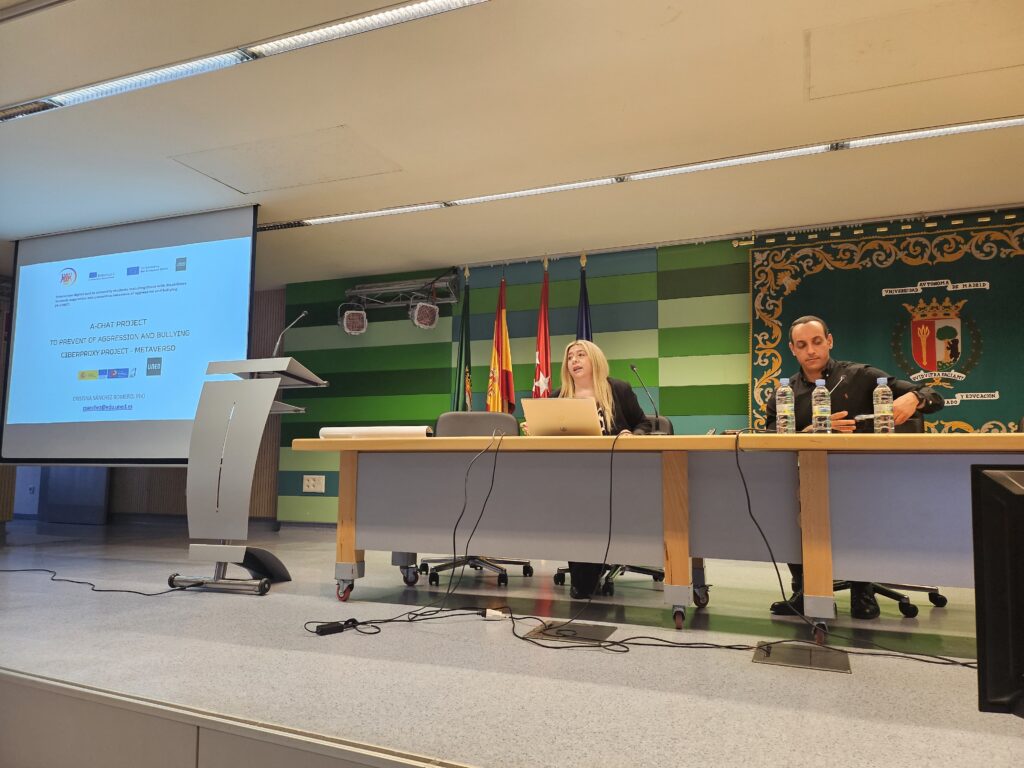
The project coordinator prof. PhD Cristina Sanchez Romero from UNED together with Prof. PhD Pilar Gutiez Cuevas from AMPAT and Mr. Andrean Lazarov from BIST presented different components of the project development during the EMPLOGAME Cluster Multiplier Event. It was held on 27 October 2025 at the Autonomous University of Madrid, where more than 90 educators, students and mental health experts received information about the project. The event was a good recruitment opportunity for the consortium to promote the forthcoming piloting activities.
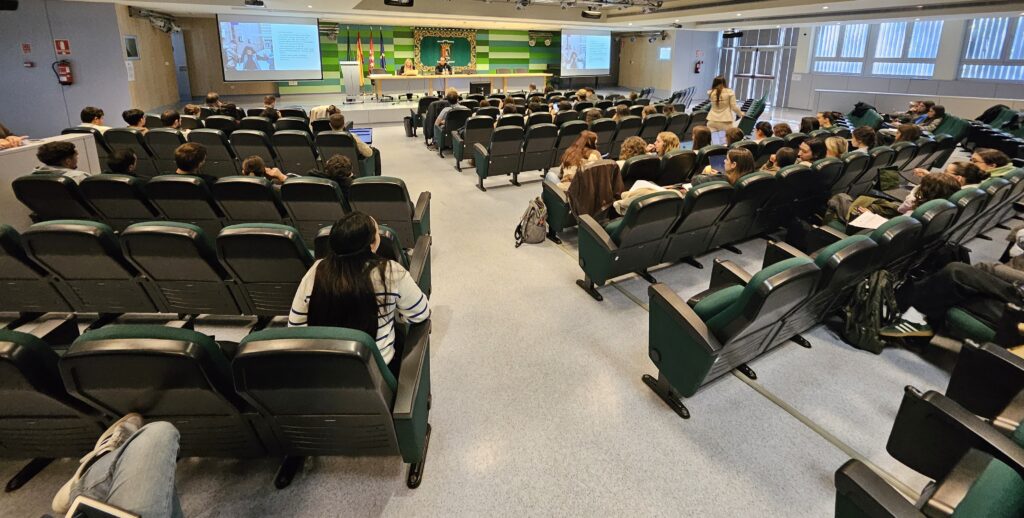
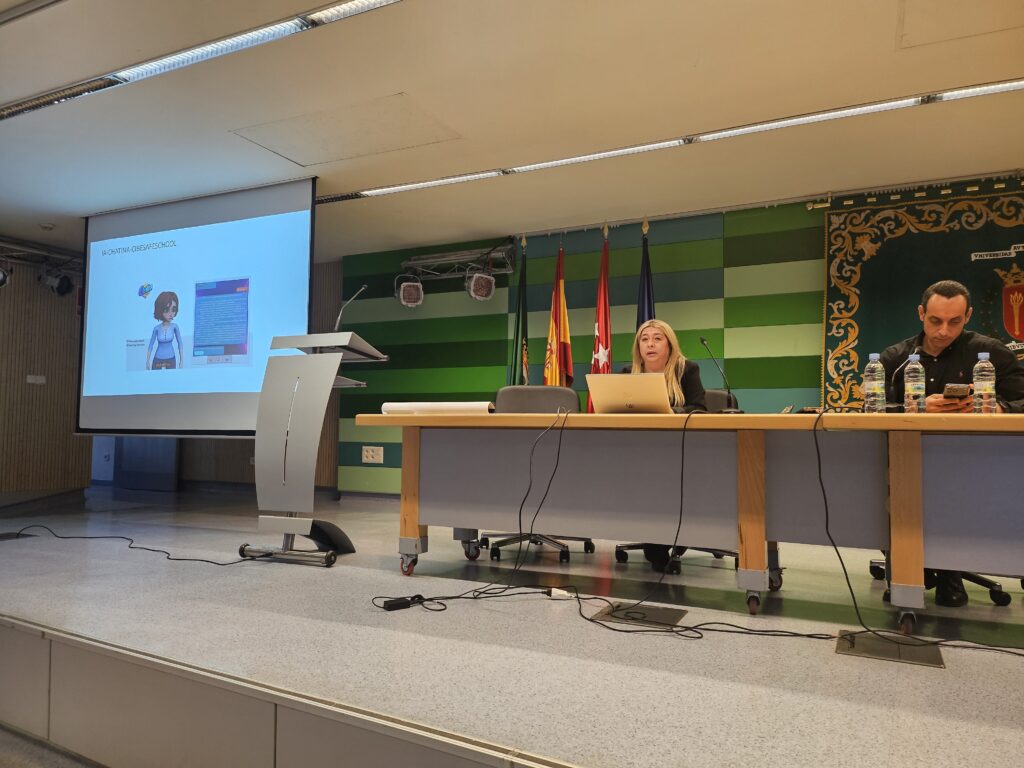
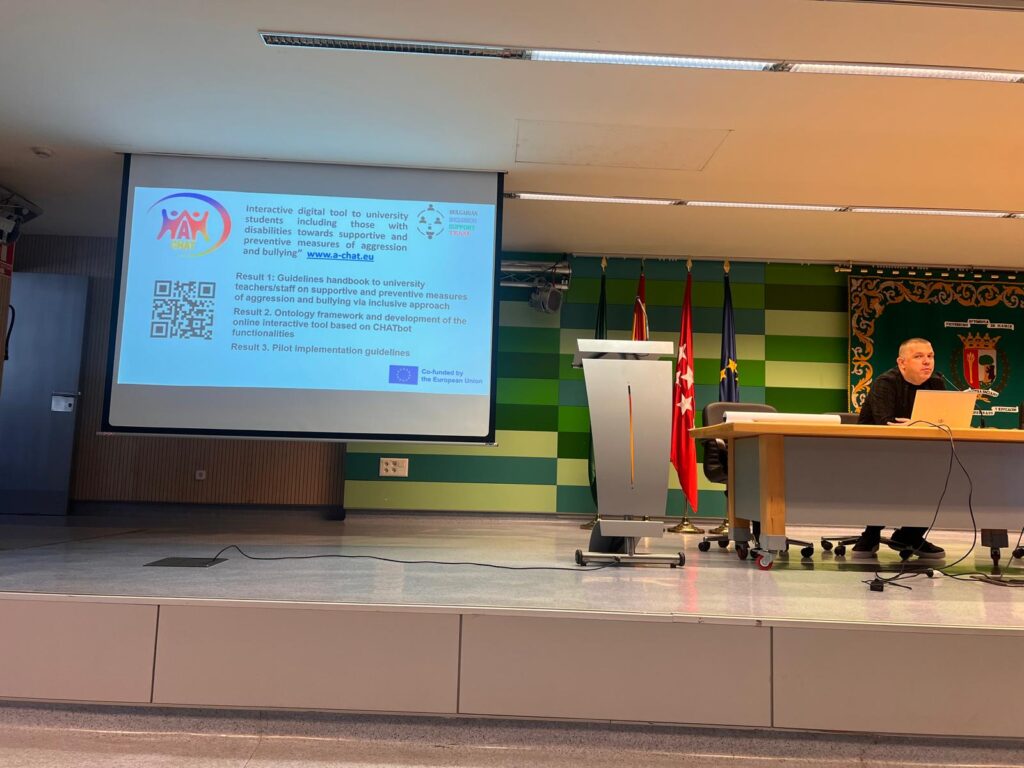
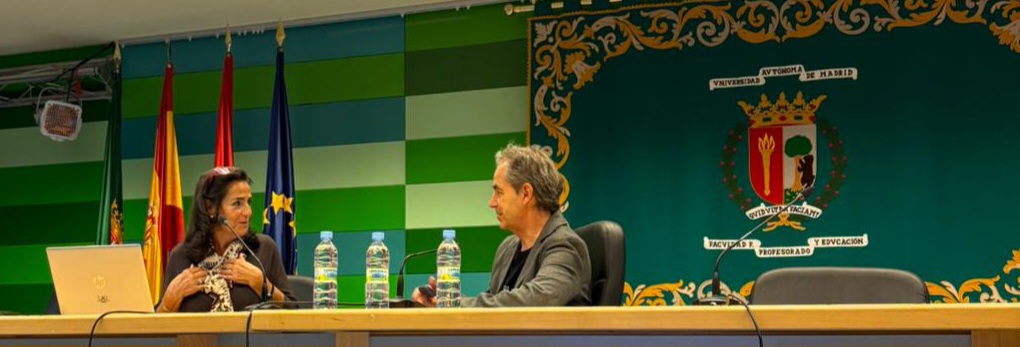
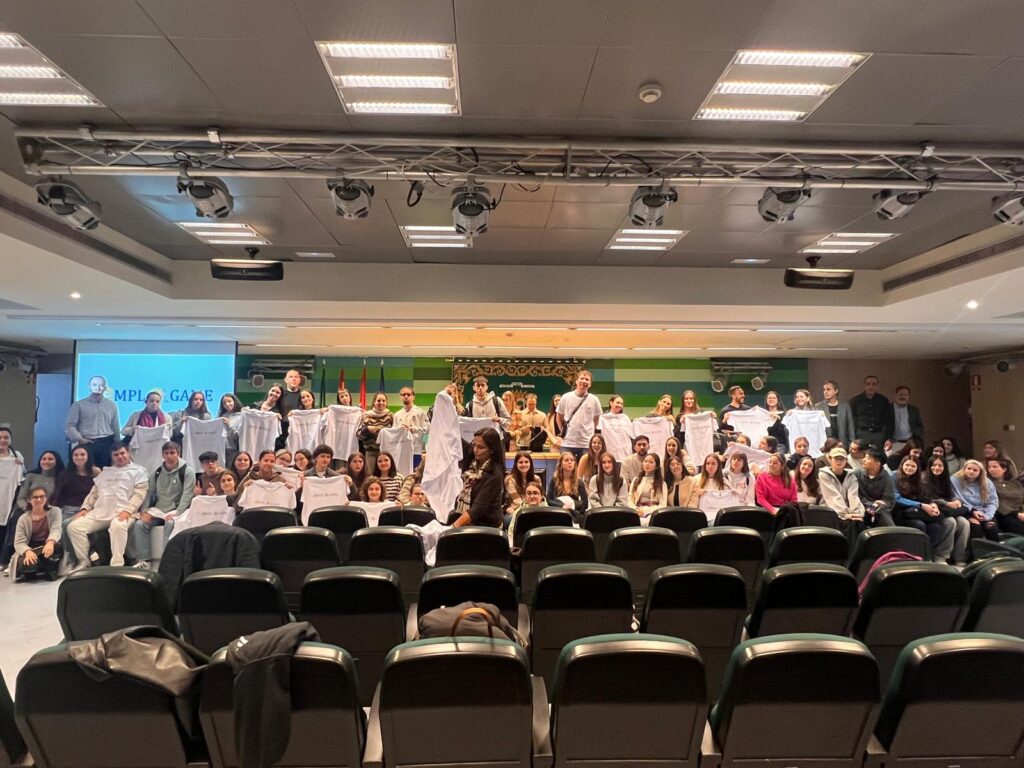
Promotion of the project during EAIE Gothenburg 2025, Sweden
The project was promoted during networking sessions, individual talks and workshops at the 35th Annual International Conference and Fair – EAIE 2025 organised by the European Association for International Education. The event was held in the period 9-12 September 2025 in Gothenburg, Sweden, where more than 7000 educational professionals and students from all over the world have participated.
We were able to extend the dissemination and promotion of the project to an international level during series of individual meetings with rectors, vice-rectors and directors of international officies of universities from Abu Dhabbi, Qatar, Dubai, Saudi Arabia, India, Bangladesh, Vietnam, China. The interest towards the project results was significant. Thanks to that, the partners received new invitations to speak at international events.

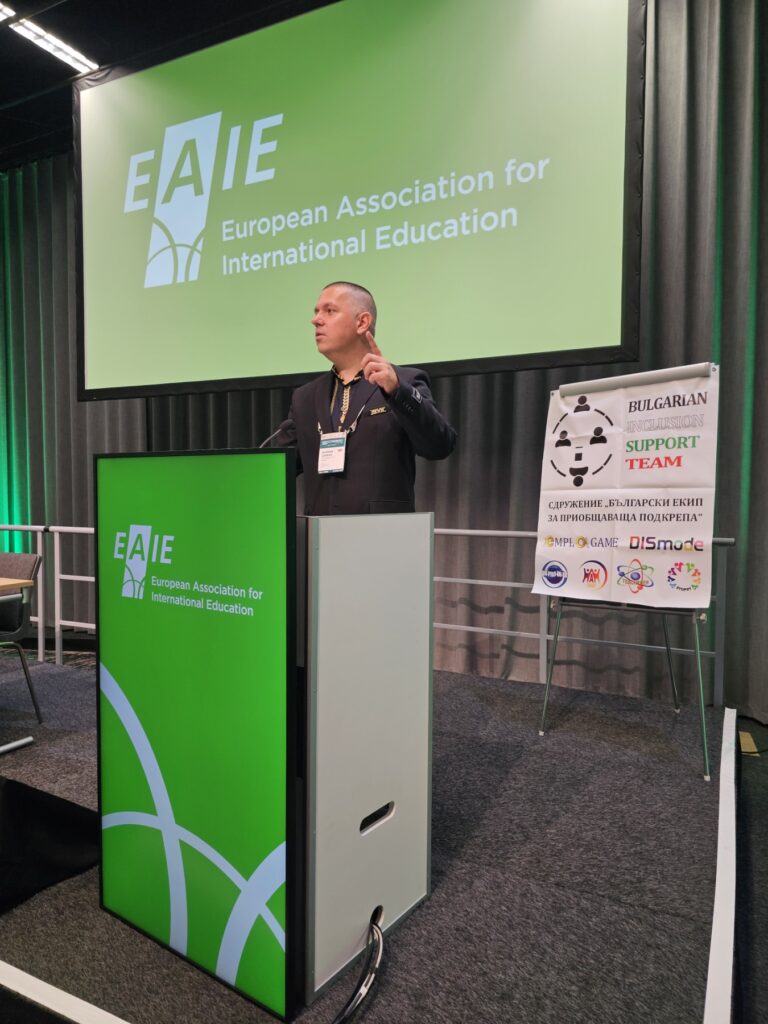

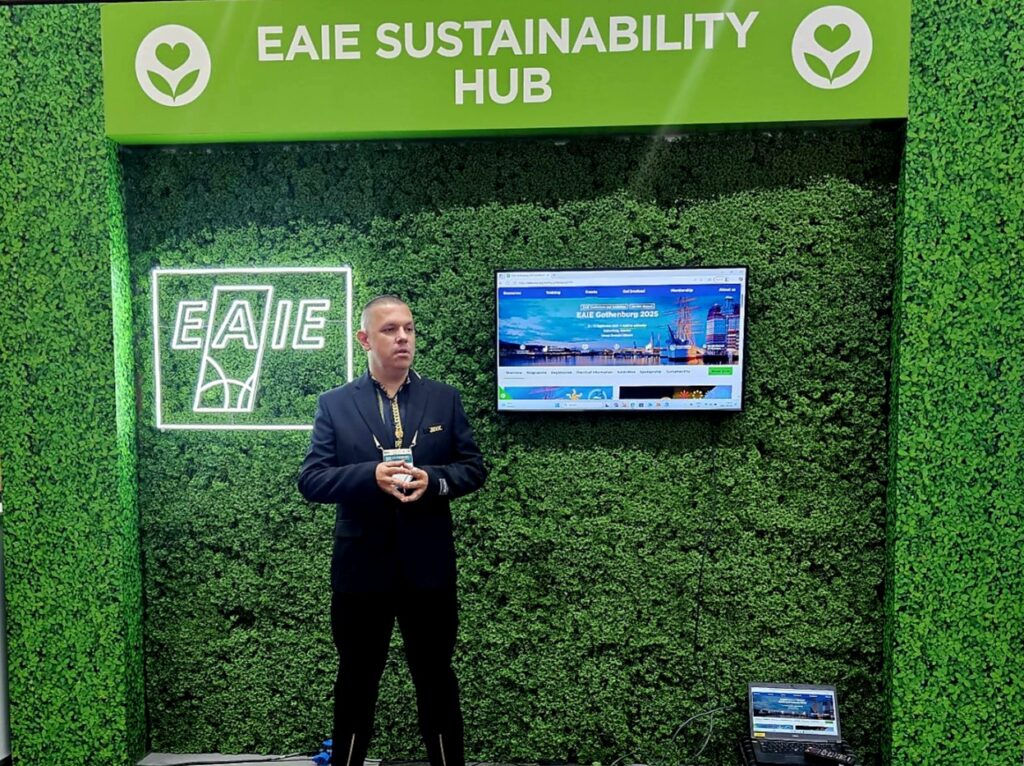
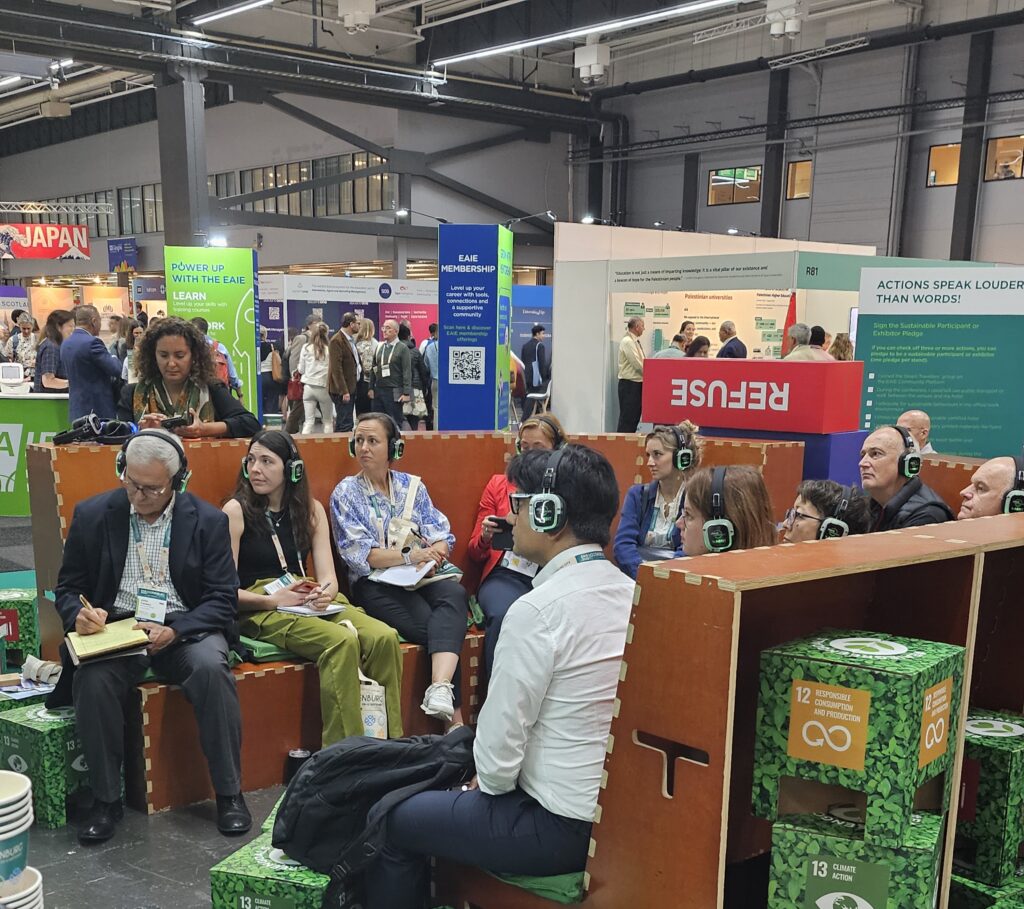
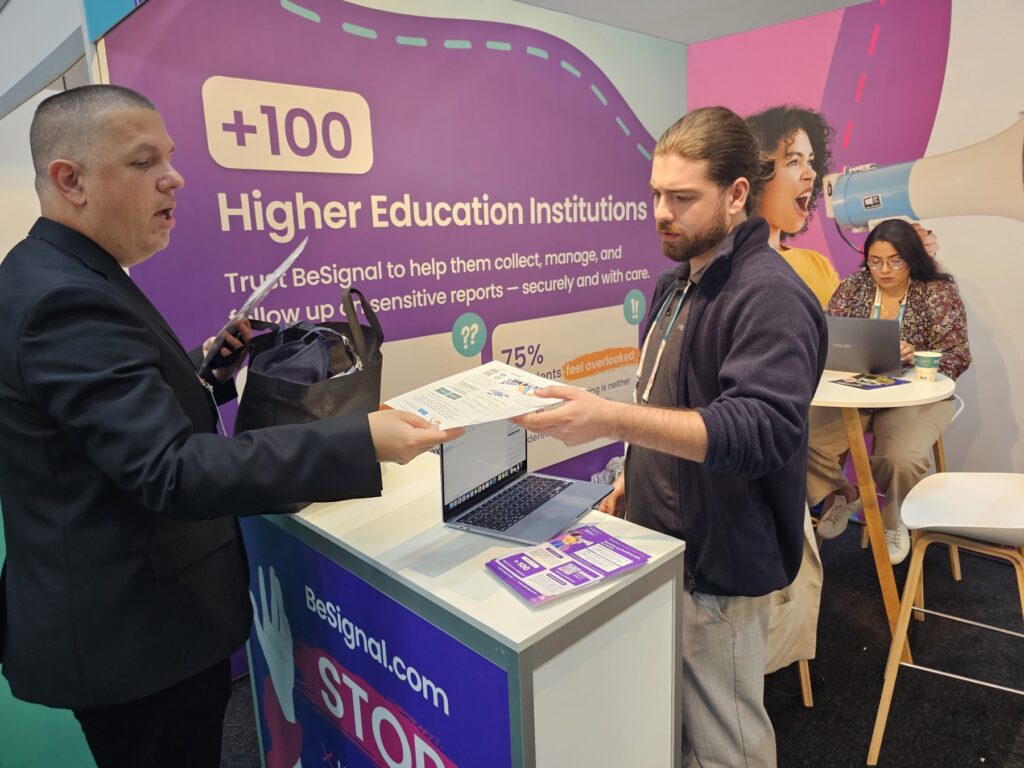
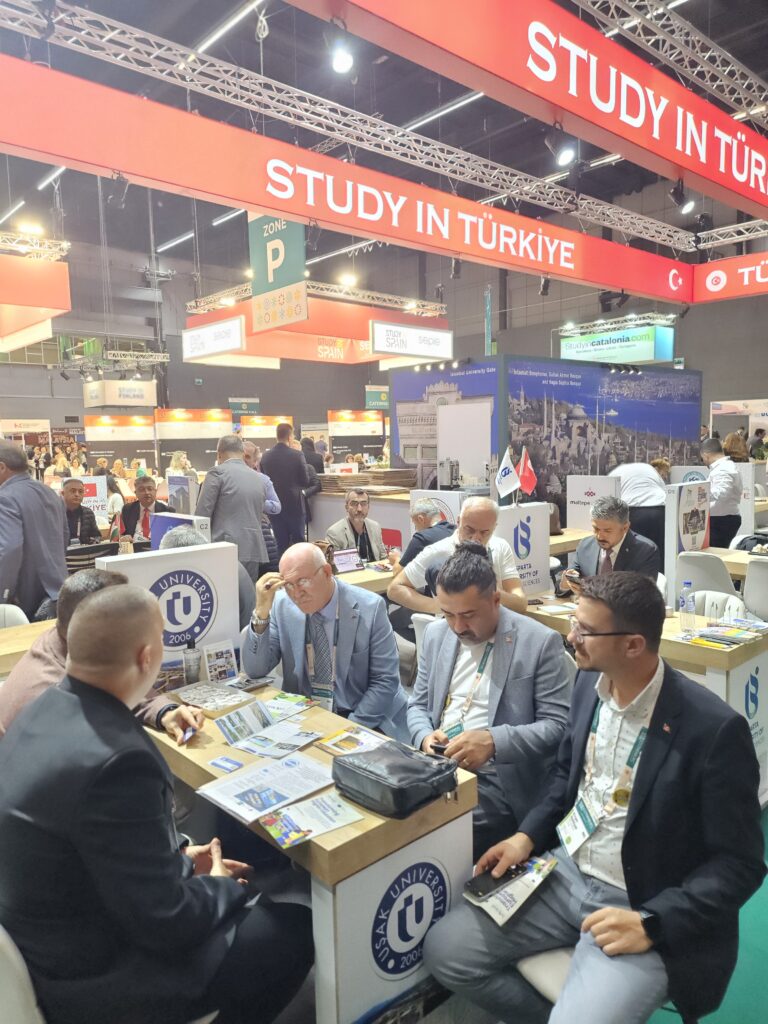
Presentation of the project during “Partnerships for success” round table in Plovdiv, Bulgaria – 21 March 2025
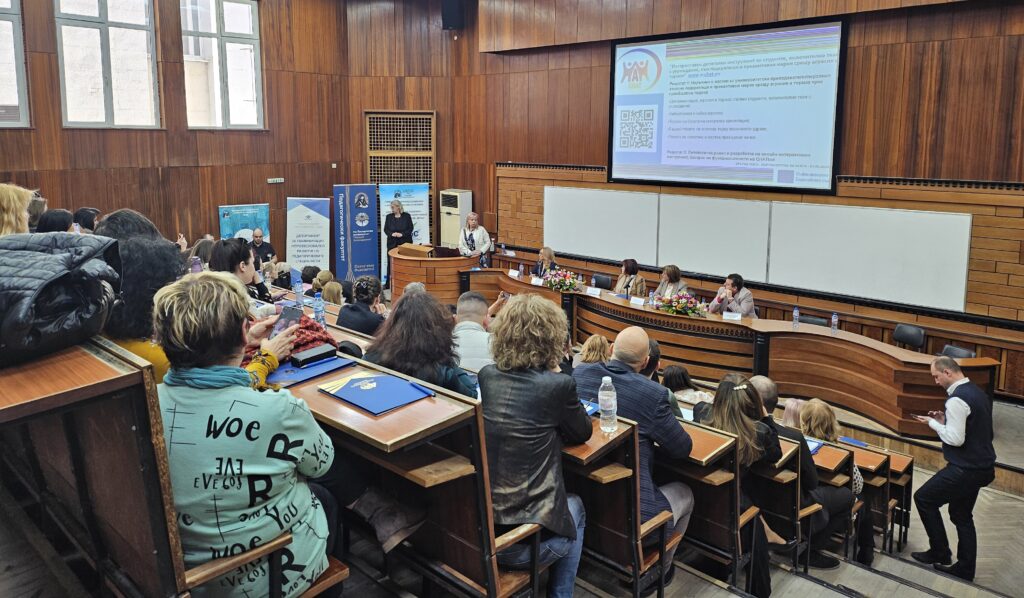
On 21 March 2025, a public council and round table on the topic “Partnerships for Success” was held at the Faculty of Pedagogy at Plovdiv University “Paisii Hilendarski”. The event brought together university professors, experts, directors, representatives of institutions and NGOs to discuss visions, practices and opportunities for sustainable education.
The project and its expected results were presented by Assoc. Prof. Albena Alexandrova-Ovcharova and Prof. Dsc Dora Levterova-Gadjalova from Department of educational management and pedagogy at the Plovdiv university “Paisii Hilendarski” – partner in A-CHAT project.
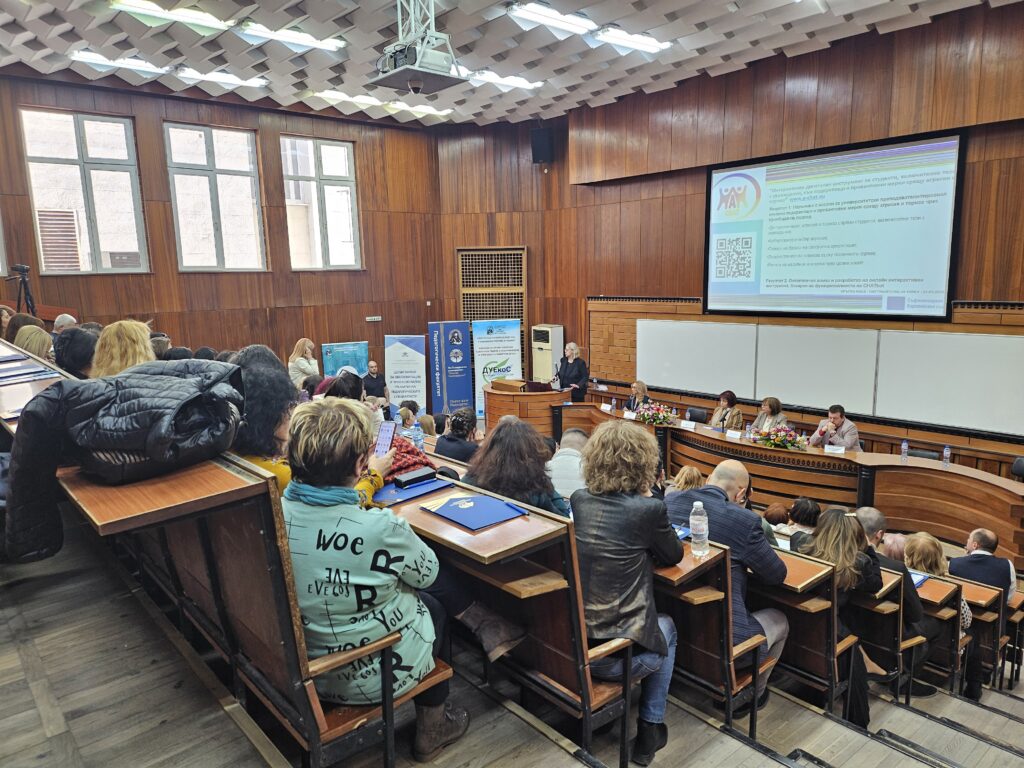
The event was in line with the strategy for the launching of the Community of practice in Bulgaria. The participants were invited to apply for the project releases.
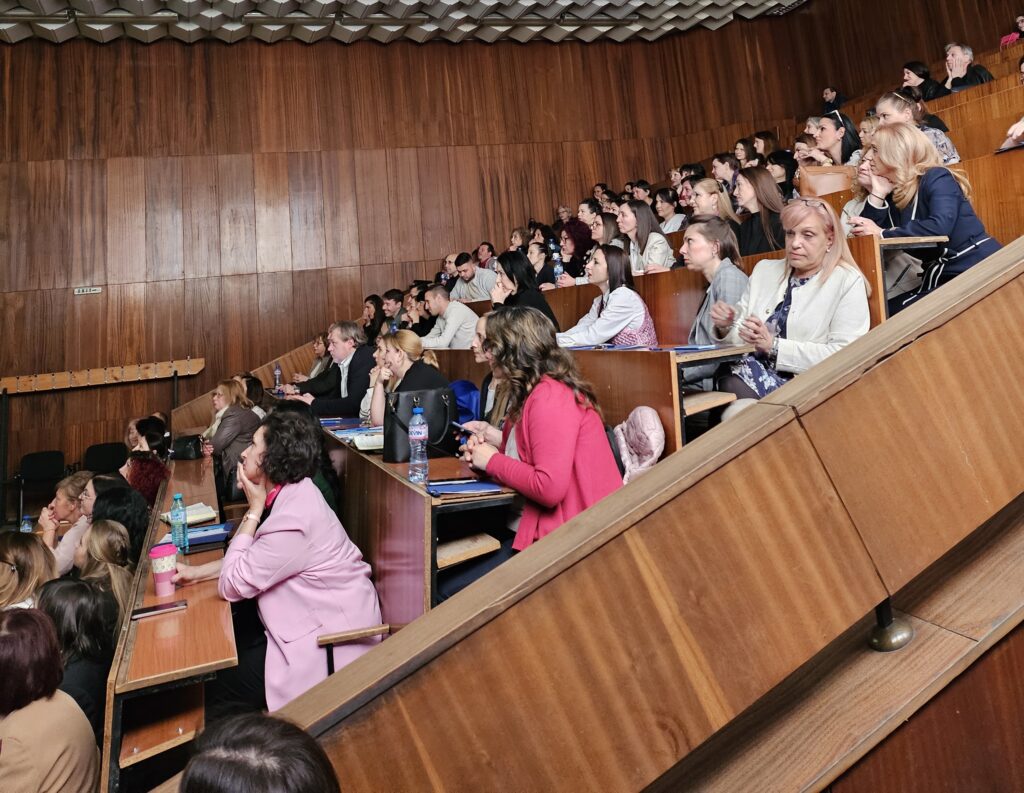
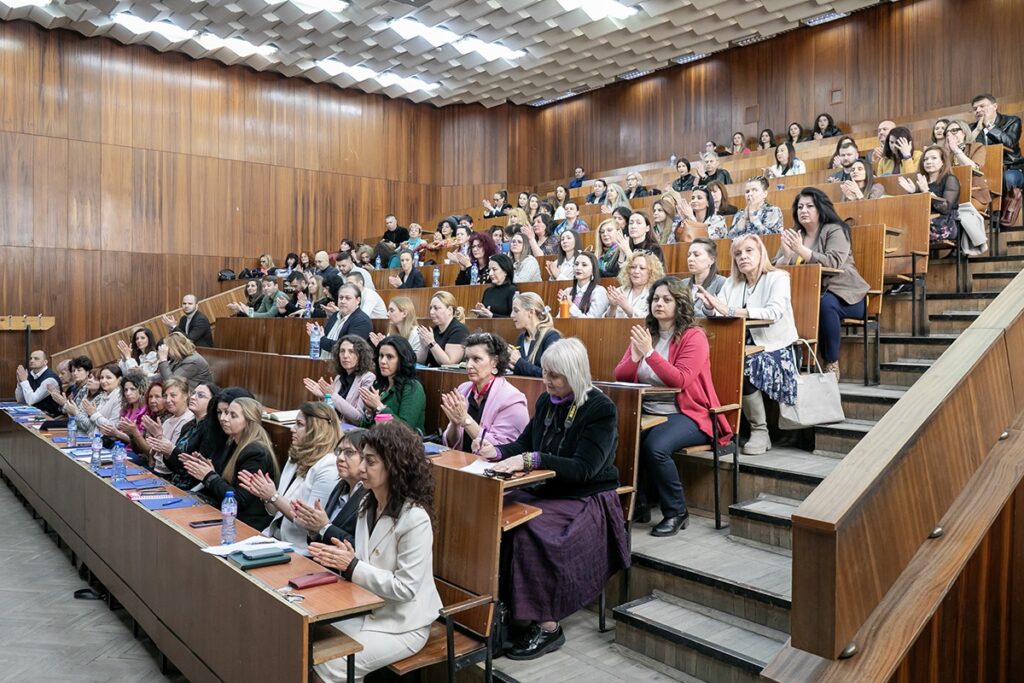
Presentation of the project concept and gathering feedback from academicians, teachers, psychologists and professionals working with students with disabilities in Sofia, Bulgaria
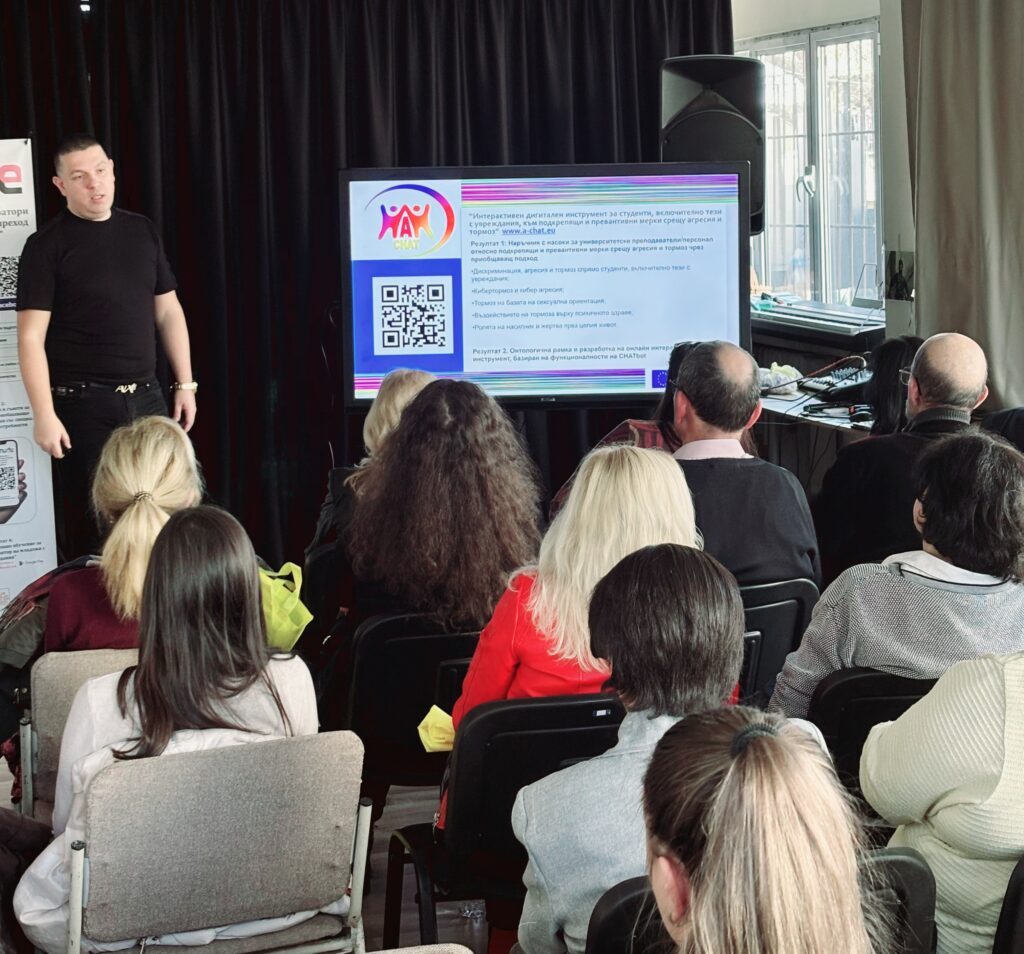
The Bulgarian Inclusion Support Team presented the project concept to academicians, teachers, psychologists and professionals working with students with disabilities. The main goal was to discuss the draft content map of the Result 1: Guidelines handbook to university teachers/staff on supportive and preventive measures of aggression and bullying via inclusive approach and Result 2. Ontology framework and development of the online interactive tool based on CHATbot functionalities.
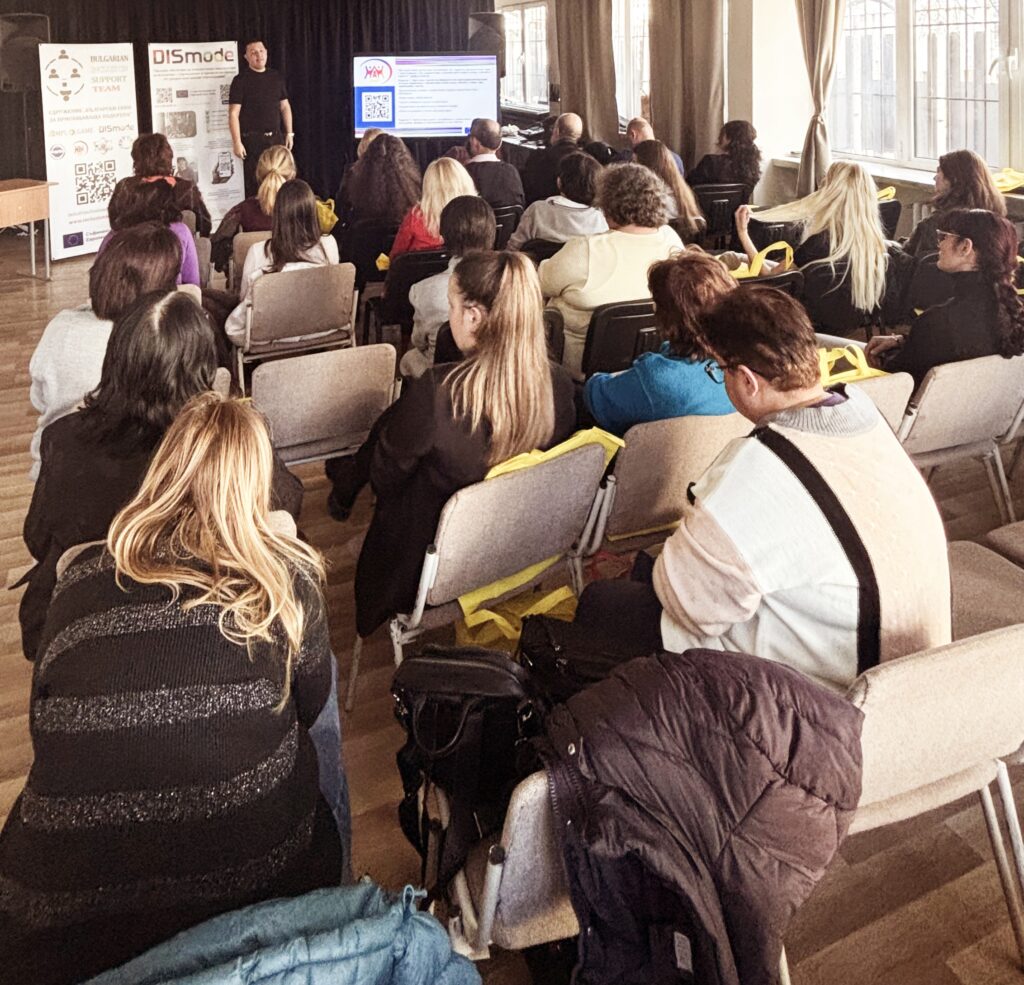
This event was a part of the strategy for the implementation of Result 4. Establishment and maintenance of European Comunity of practice on resilience and prevention of bullying and aggression.
The participants expressed their desire to join the Community and to use the above results as soon as their final versions are ready.
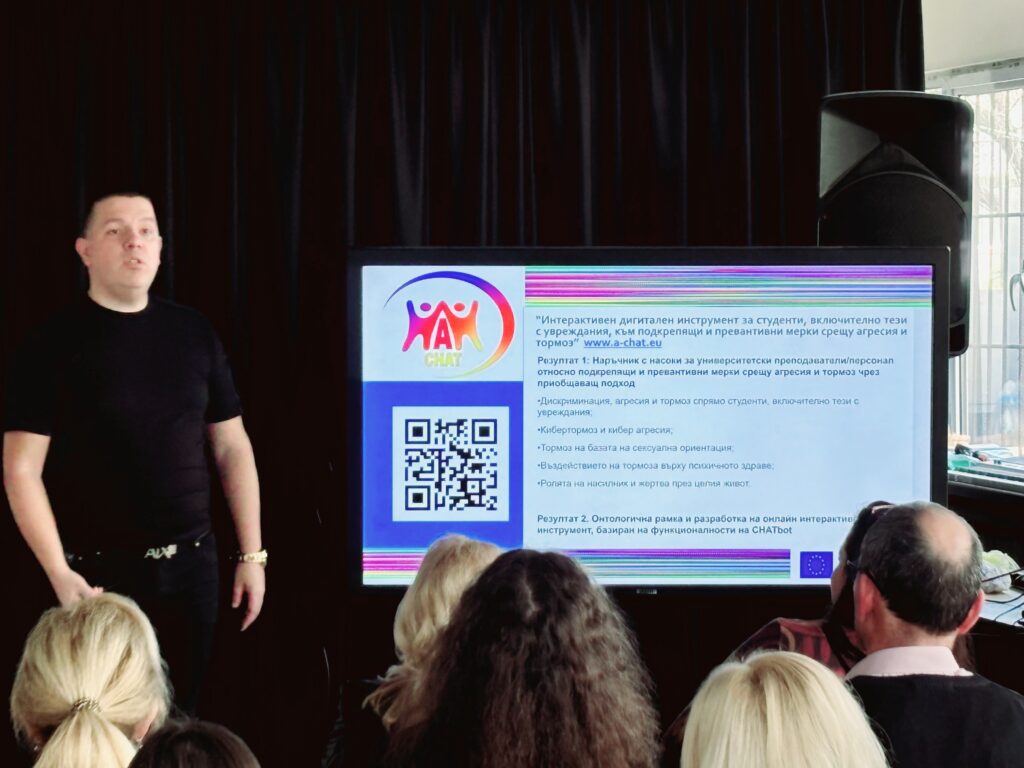
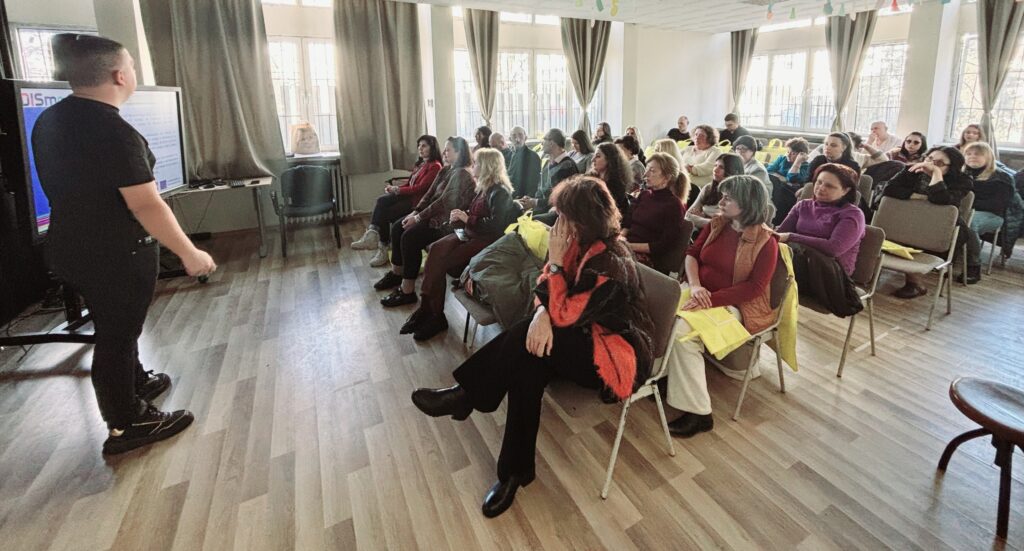
A-CHAT project presented during International conference organised by National Erasmus+ Agency of Republic of North Macedonia, 5-7.03.2025, Ohrid
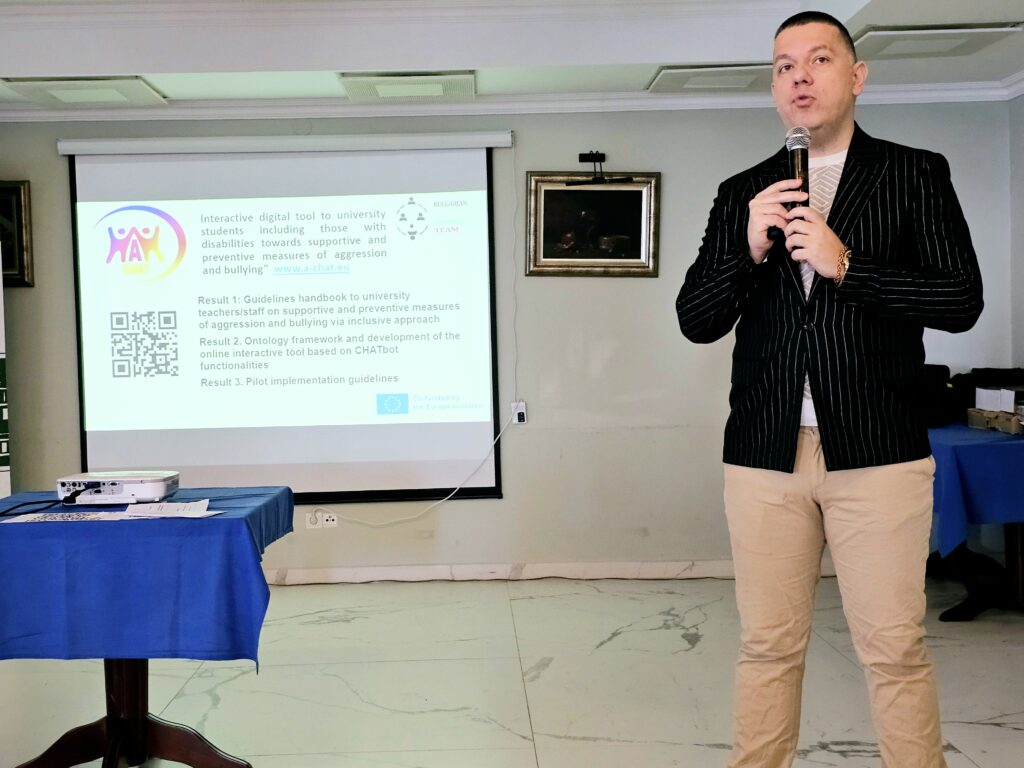
The project was presented by Mr. Andrean Lazarov – CEO of Bulgarian Inclusion Support Team during International conference organised by National agency of Republic of North Macedonia. The conference was held in the period 5-7.03.2025 in Ohrid. The aim of the event was to bring together teachers and psychologists from across the educational spectrum — from primary education to universities — who are actively working on issues of prevention of agression and bullying, inclusion and support of vulnerable groups in the educational process.
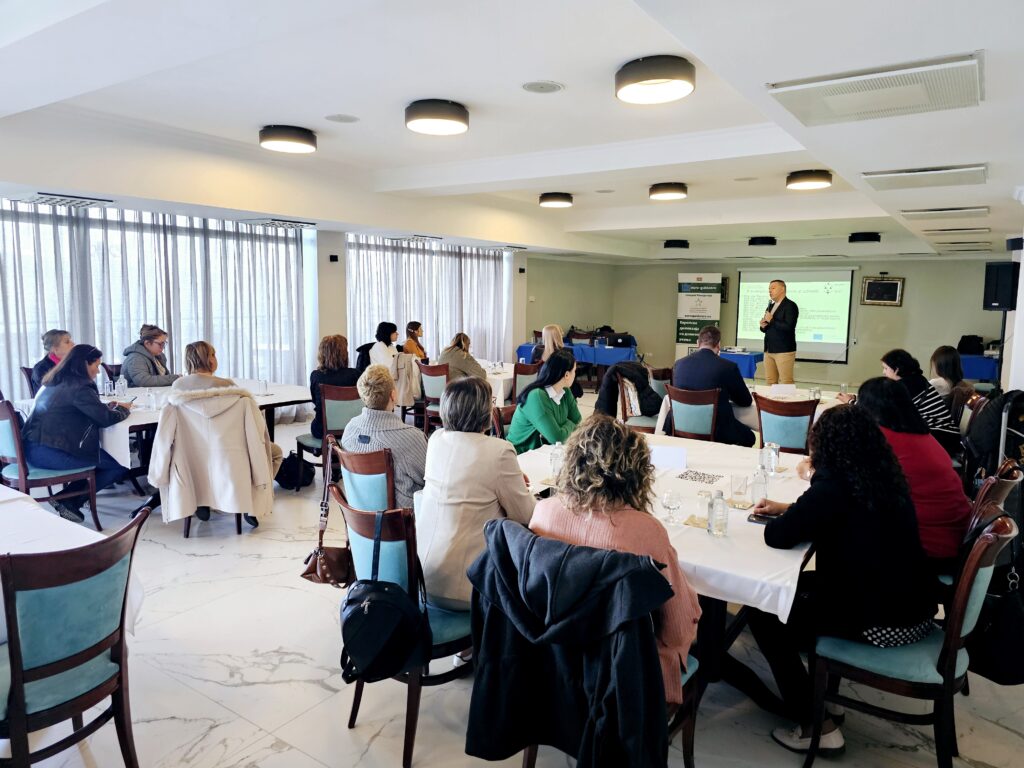
Potential exploitation was discussed with universities and schools from Skopie, Bitola, Shtip, Prilep and Tetovo.
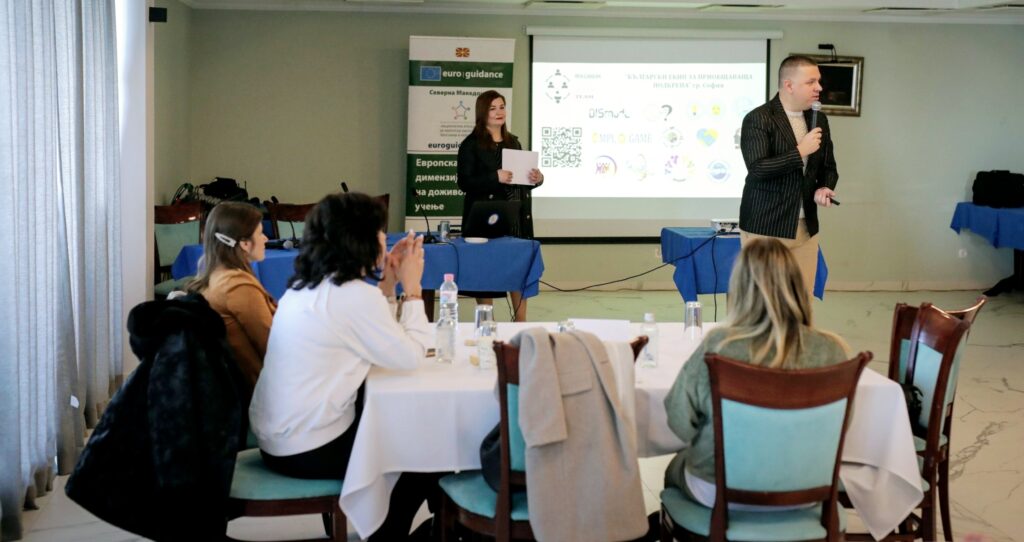
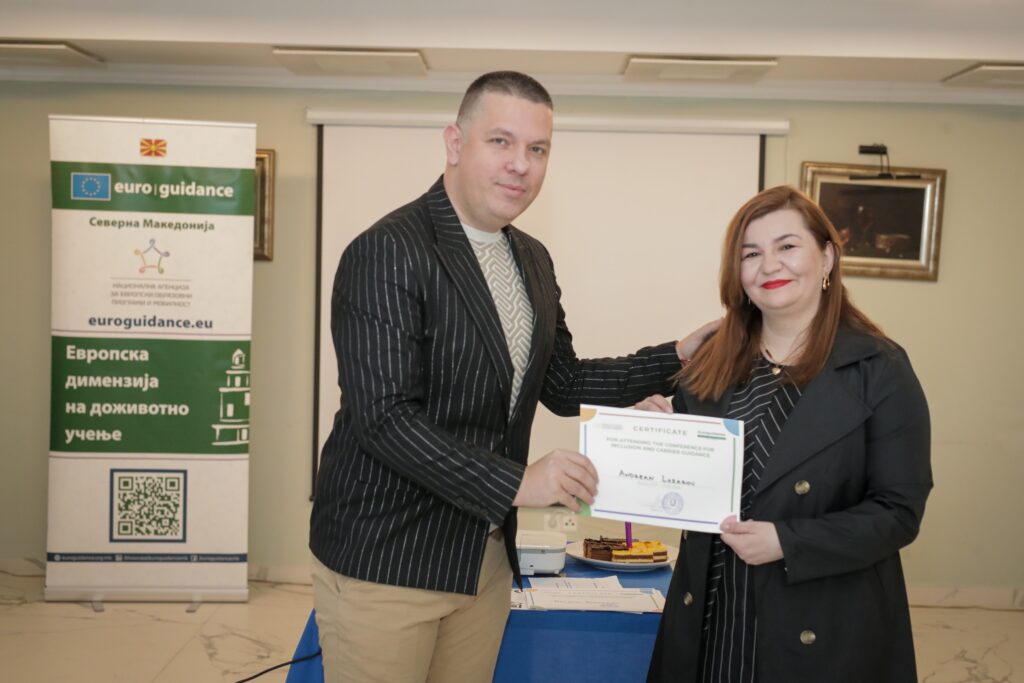
Very productive kick-off transnational partners meeting held in Madrid – 22-23 January 2025
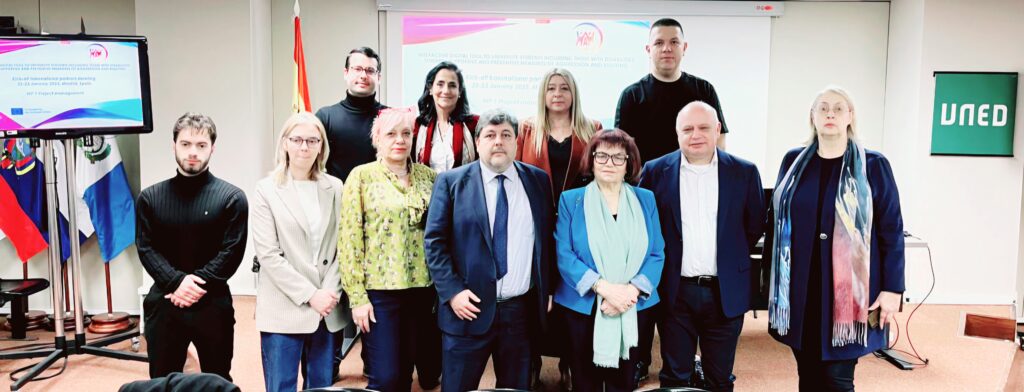
The kick off meeting of the A-CHAT project: “Interactive digital tool to university students including those with disabilities towards supportive and preventive measures of aggression and bullying” was successfully held on 22-23 January 2025 in Madrid, Spain. It was chaired by Prof. Cristina Sanchez Romero from UNED.
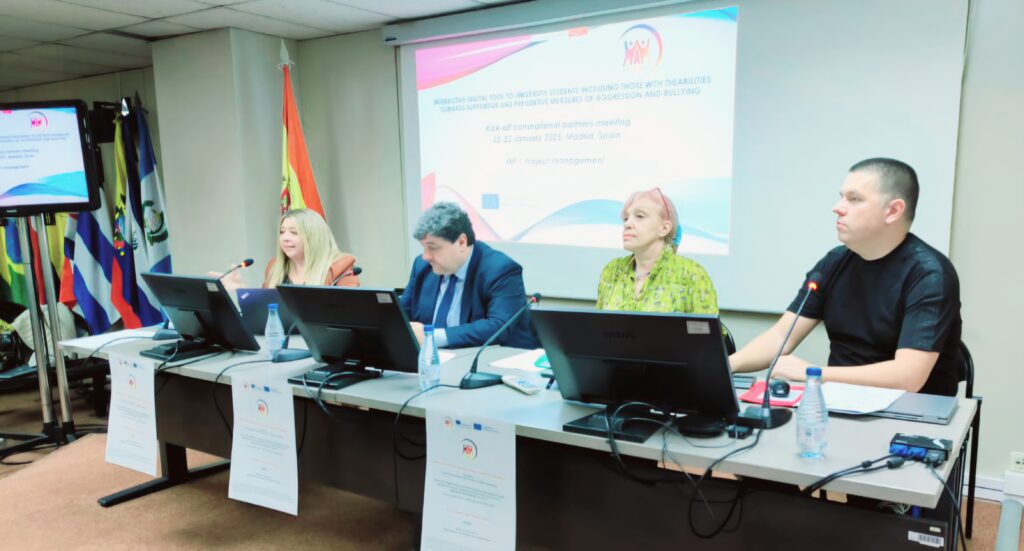
The partners from Bulgaria, Spain, Portugal and Greece successfully worked on the ontology development of the Chat bot tool as well as finalised the structure of the Guidelines handbook to university teachers/staff on supportive and preventive measures of aggression and bullying via inclusive approach. Follow us for more news shortly.
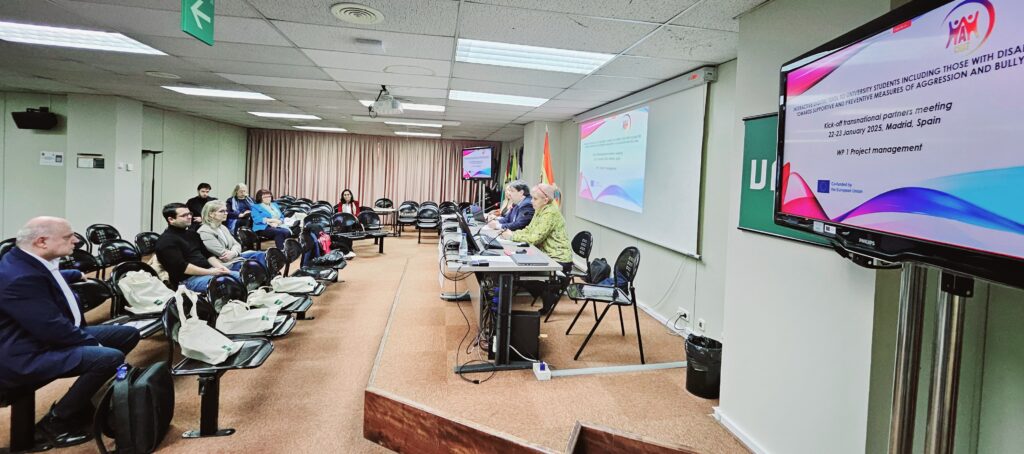
Special guest of the event was Dr. Yanka Takeva – Chairperson of Bulgarian Teachers’ Union – the biggest sindicate of 96 000 teachers in Bulgaria.
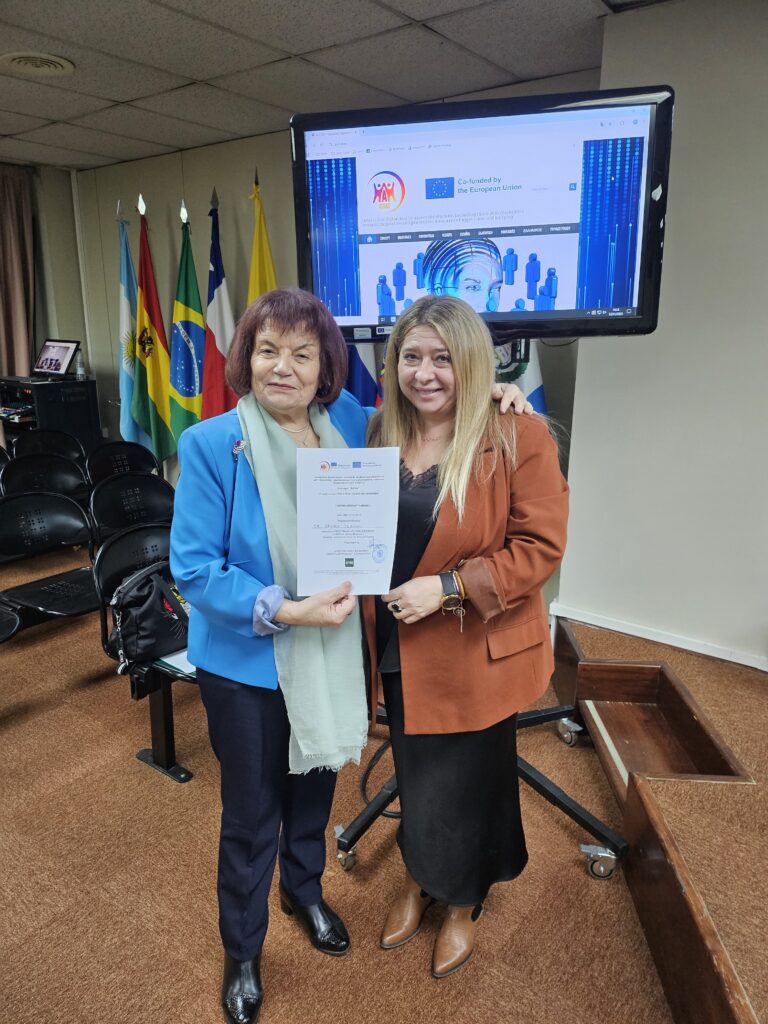
A-CHAT Project presentation to students’ DPADI818 – Inclusion and Diversity Subject
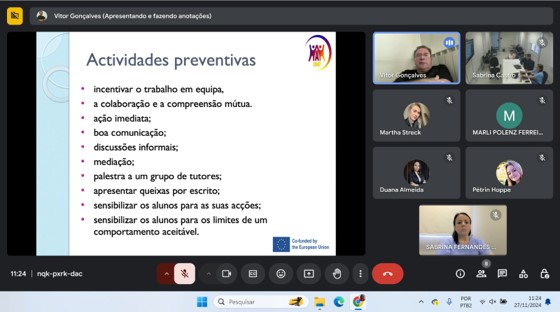
The project concept was presented online to Brasil and Potugal (Professional and Technological Education – Academic Master’s Degree) representatives. They have expressed their interest towards the project and to use the results as soon as they are ready to be piloted.
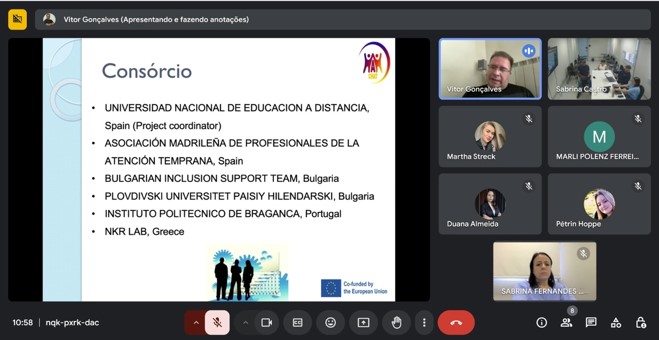
“Expanding Horizons through International Networks” – 6th December 2024, Budapest, Hungary
On 6 December 2024, the Annual Conference of the National Agencies of Erasmus+ programme was held in Budapest, Hungary, under the title “Expanding Horizons through International Networks”.
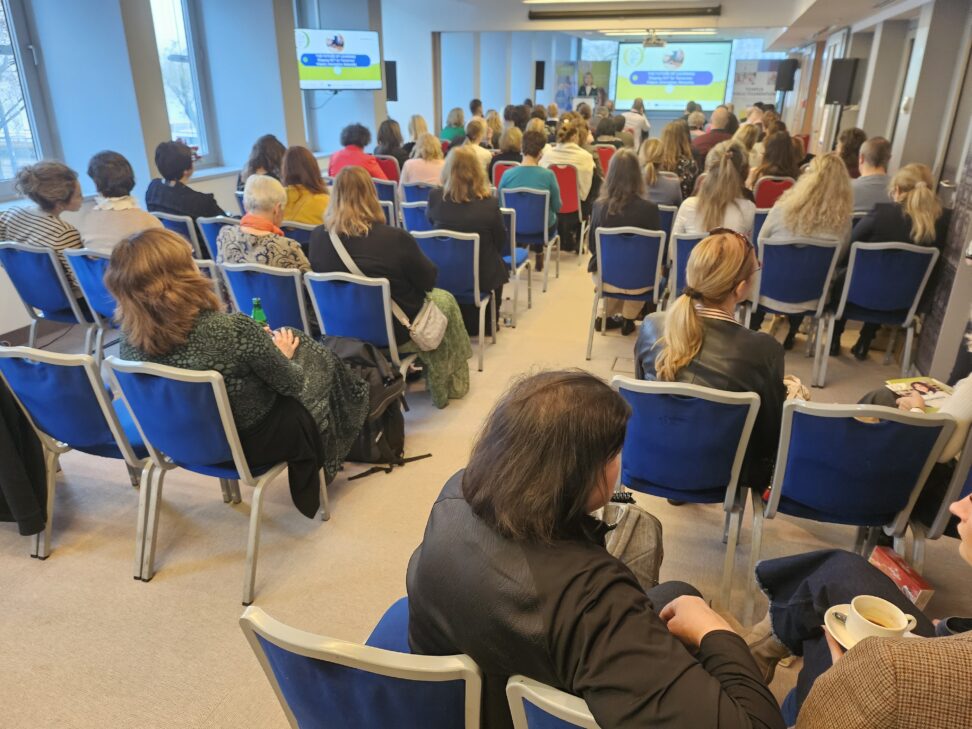
The event was organized by the Hungarian National Agency for the Erasmus+ Programme – Tempus Public Foundation, with the support of the Directorate General for Education, Youth, Culture and Sport of the European Commission.
The event was attended by representatives of 13 European National Agencies – Austria, Bulgaria, Croatia, Germany, Hungary, Estonia, Czech Republic, Lithuania, Latvia, Romania, Poland, Slovakia and Turkey. The Bulgarian Inclusion Support Team mentioned the successful project start during the speech of the CEO – Mr. Andrean Lazarov. The participants were invited to join the European community of practices towards prevention of aggression and bullying at educational institutions.
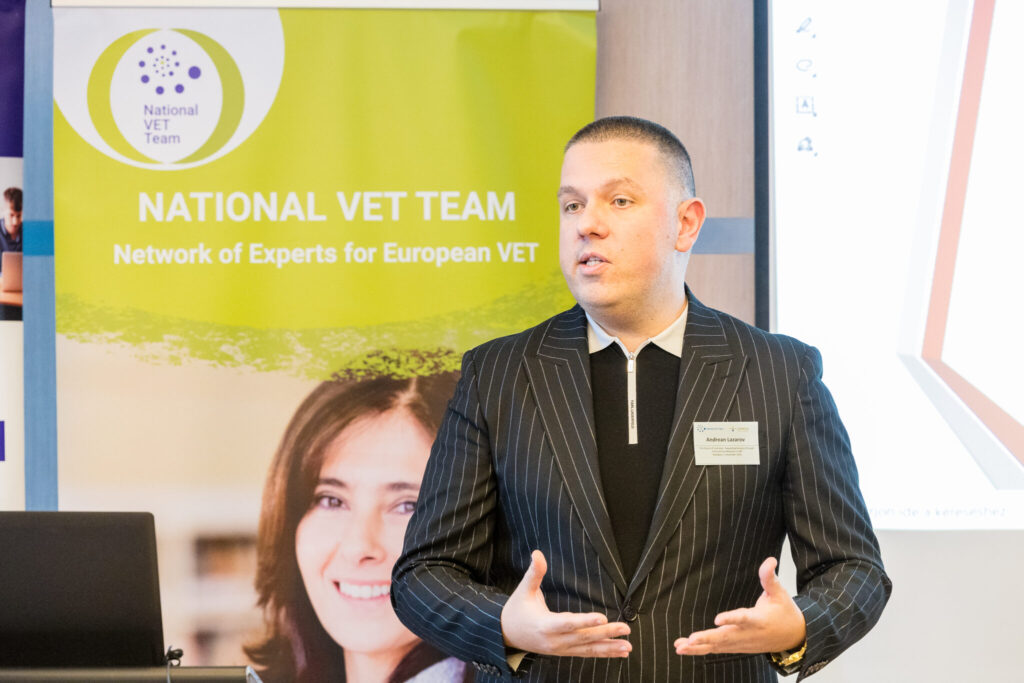
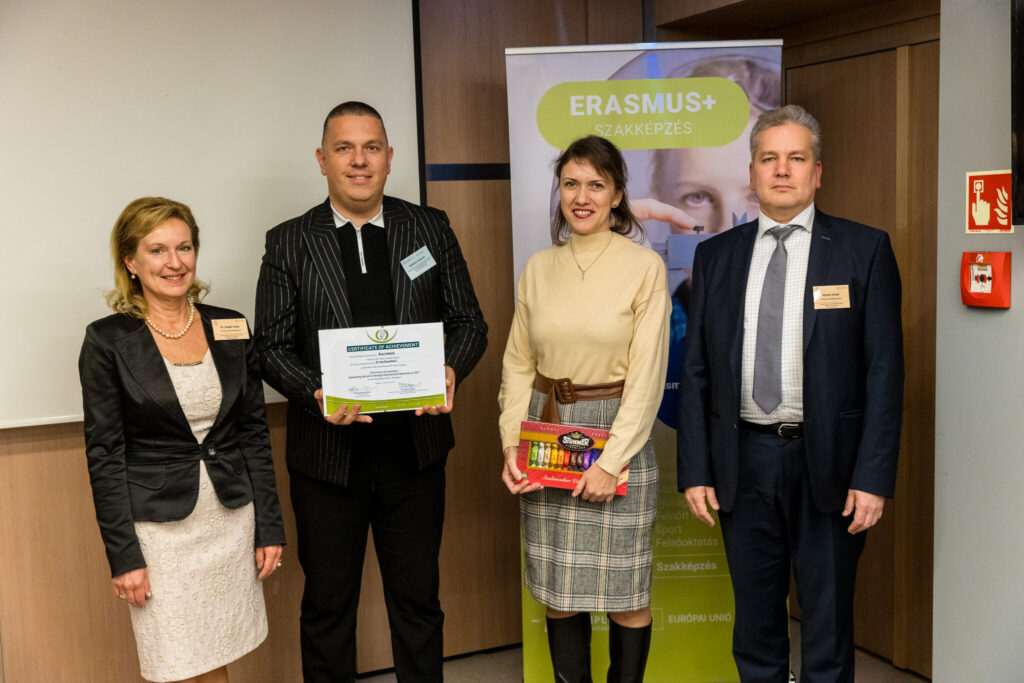
Successful start of the project

We are glad to announce that the project was successfully started on 1st December 2024.
It will continue in the next 30 months with the development and approbation of the Guidelines handbook to university teachers/staff on supportive and preventive measures of aggression and bullying via inclusive approach and online interactive tool based on CHATbot functionalities.
The project is under the measure KA220 – Partnerships between organisations and institutions in the Higher education field.
Follow us for more news shortly!

Financiado por la Unión Europea. Las opiniones y puntos de vista expresados solo comprometen a su(s) autor(es) y no reflejan necesariamente los de la Unión Europea o los de la Agencia Ejecutiva Europea de Educación y Cultura (EACEA). Ni la Unión Europea ni la EACEA pueden ser considerados responsables de ellos.

